Special Report
The City Hit Hardest by Extreme Poverty in Every State
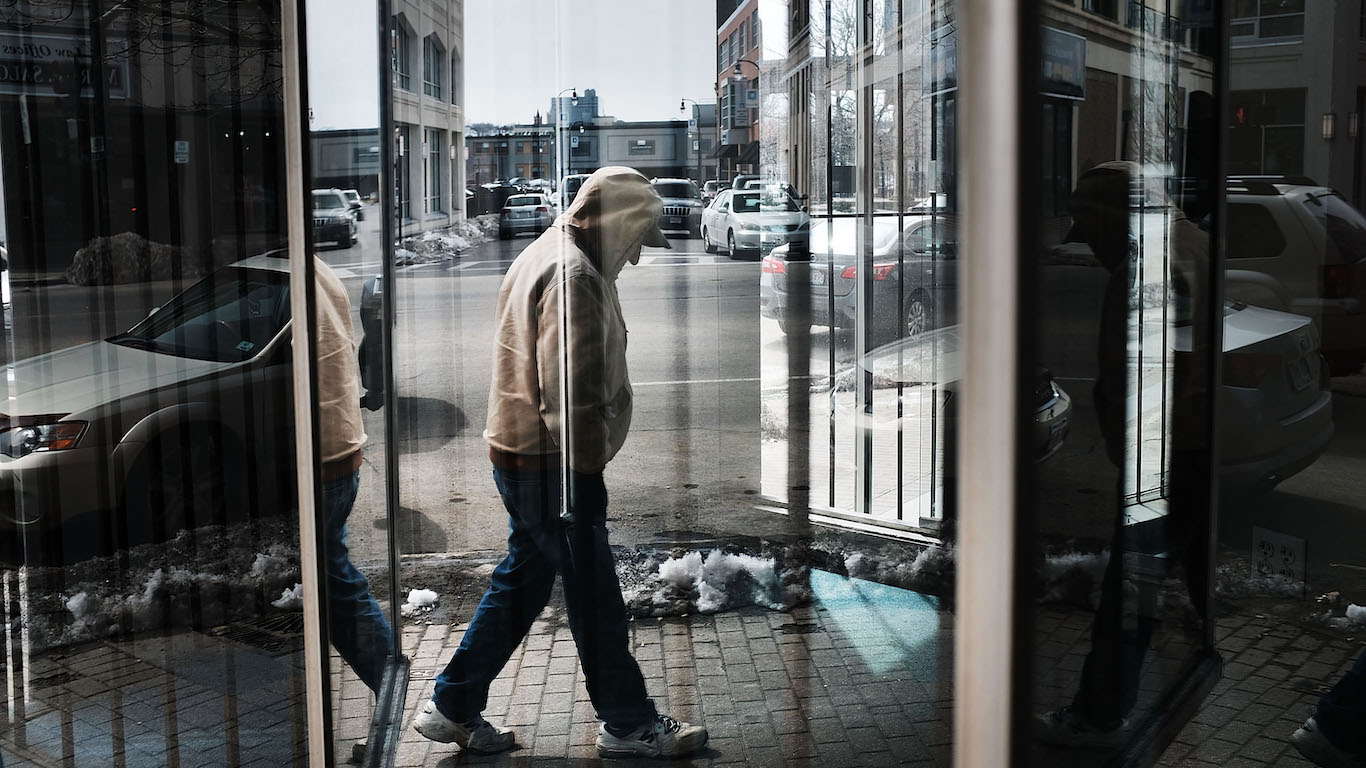
Published:
Last Updated:

For the nearly 46.9 million Americans living below the poverty line, financial insecurity affects nearly every aspect of daily life — from physical and mental health to achievement in education to personal relationships. Just as poverty takes a toll on the individual, communities where a large share of the population lives in poverty can also suffer tremendously.
The U.S. poverty rate stands at 14.6%. Concentrated poverty is defined as neighborhoods with poverty rates of 40% or more, that is, 40% of the neighborhood’s population lives below the poverty line. Individuals living on poverty level income in concentrated-poverty neighborhoods face not only the personal effects of poverty, but also the broader, communal effects. These often include higher crime rates, underperforming schools, and limited economic opportunity.
To identify the cities hit hardest by concentrated poverty in every state, 24/7 Wall St. reviewed data from the U.S. Census Bureau on the share of the population living below the poverty line in concentrated-poverty neighborhoods in the nation’s 100 largest metro areas.
The cities on this list are not necessarily the poorest cities in the country. Several, including Ogden, Utah, and Dubuque, Iowa, actually have a lower poverty rate than the U.S. as a whole, but they still rank as the most economically segregated cities in their state. These are the cities with the highest poverty rates in the country. In five states, there are no metro areas with even one concentrated poverty tract. Four states — Delaware, New Hampshire, Rhode Island, and Vermont — have only one metro area, so that area is by default the one with the highest concentrated poverty rate.
Concentrated-poverty neighborhoods foster a vicious cycle of poverty among those who live there — economic and social mobility in these places tend to be limited. In most of these cities, residents of concentrated poverty neighborhoods are less than half as likely to be homeowners and have a college education and more than twice as likely to be unemployed as residents of neighborhoods with poverty rates below 40%.
Often, non-white minority residents of the cities on this list are disproportionately affected by concentrated poverty. Several cities on this list also can be found among this list of the 15 worst cities for black Americans.
Click here to see the city hit hardest by extreme poverty in every state
Click here to read our methodology
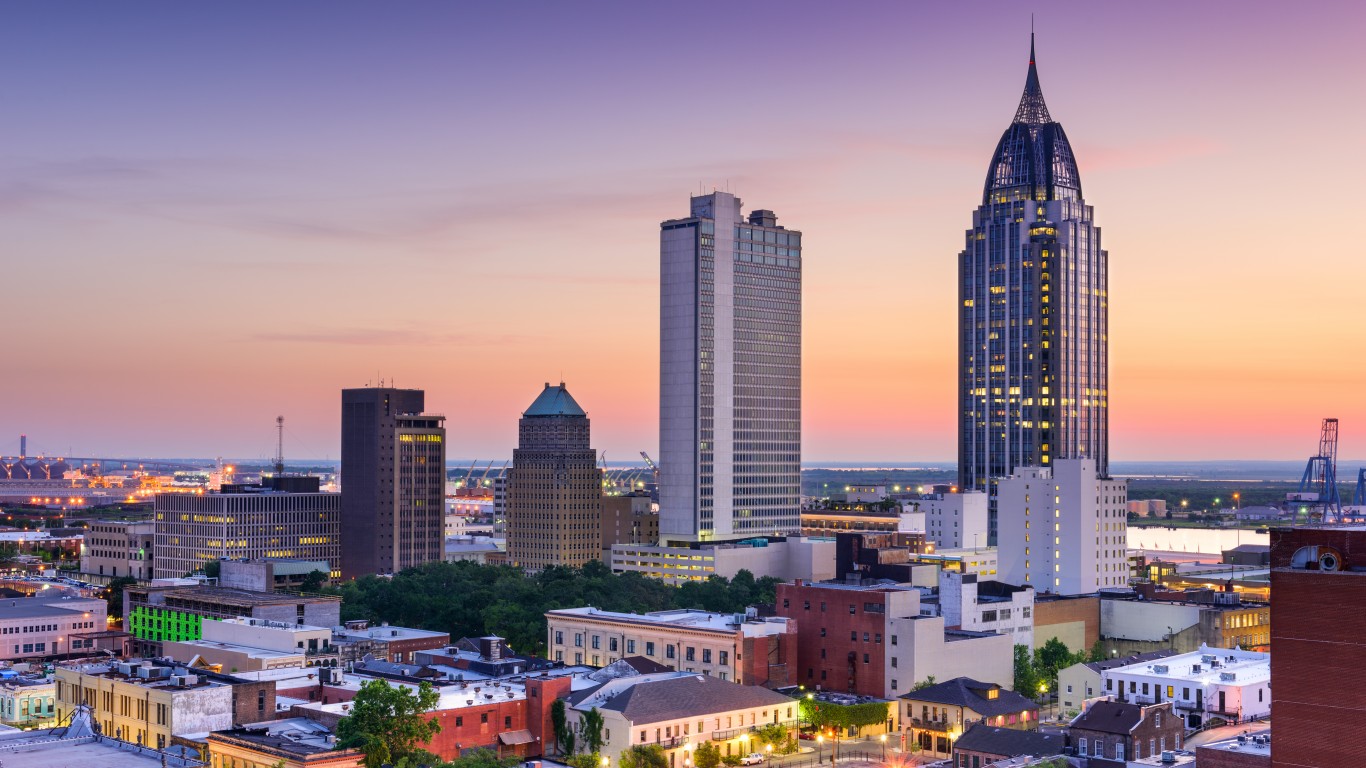
1. Alabama: Mobile
> Concentrated poverty rate: 20.6% of poor pop. (16,113 residents)
> Overall poverty rate: 19.3% (state: 18.0%)
> Neighborhoods with concentrated poverty: 18 out of 113
> Unemployment: 14.4% (poor neighborhoods) 7.2% (all other)
[in-text-ad]

2. Alaska: no metro area with concentrated poverty
> State poverty rate: 10.2%
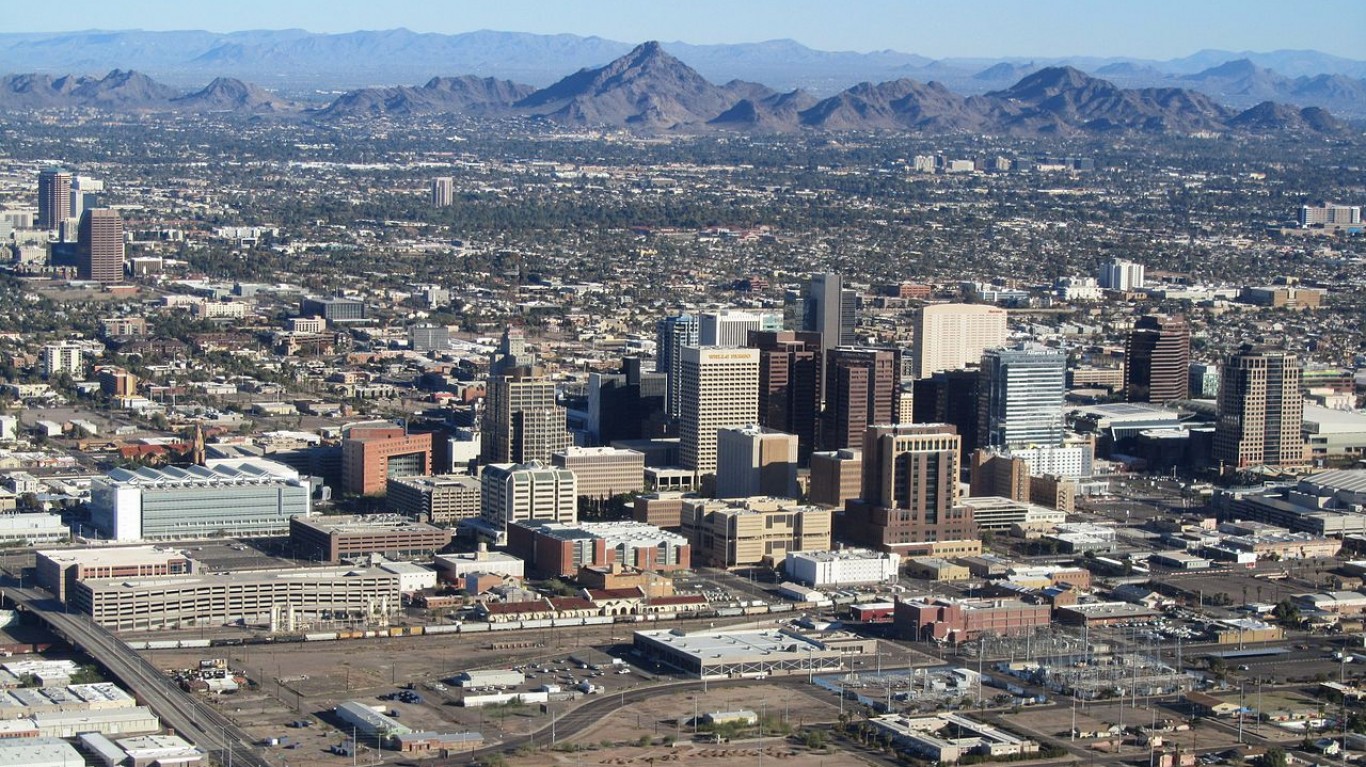
3. Arizona: Phoenix-Mesa-Scottsdale
> Concentrated poverty rate: 17.5% of poor pop. (122,909 residents)
> Overall poverty rate: 15.7% (state: 17.0%)
> Neighborhoods with concentrated poverty: 64 out of 976
> Unemployment: 10.1% (poor neighborhoods) 6.1% (all other)
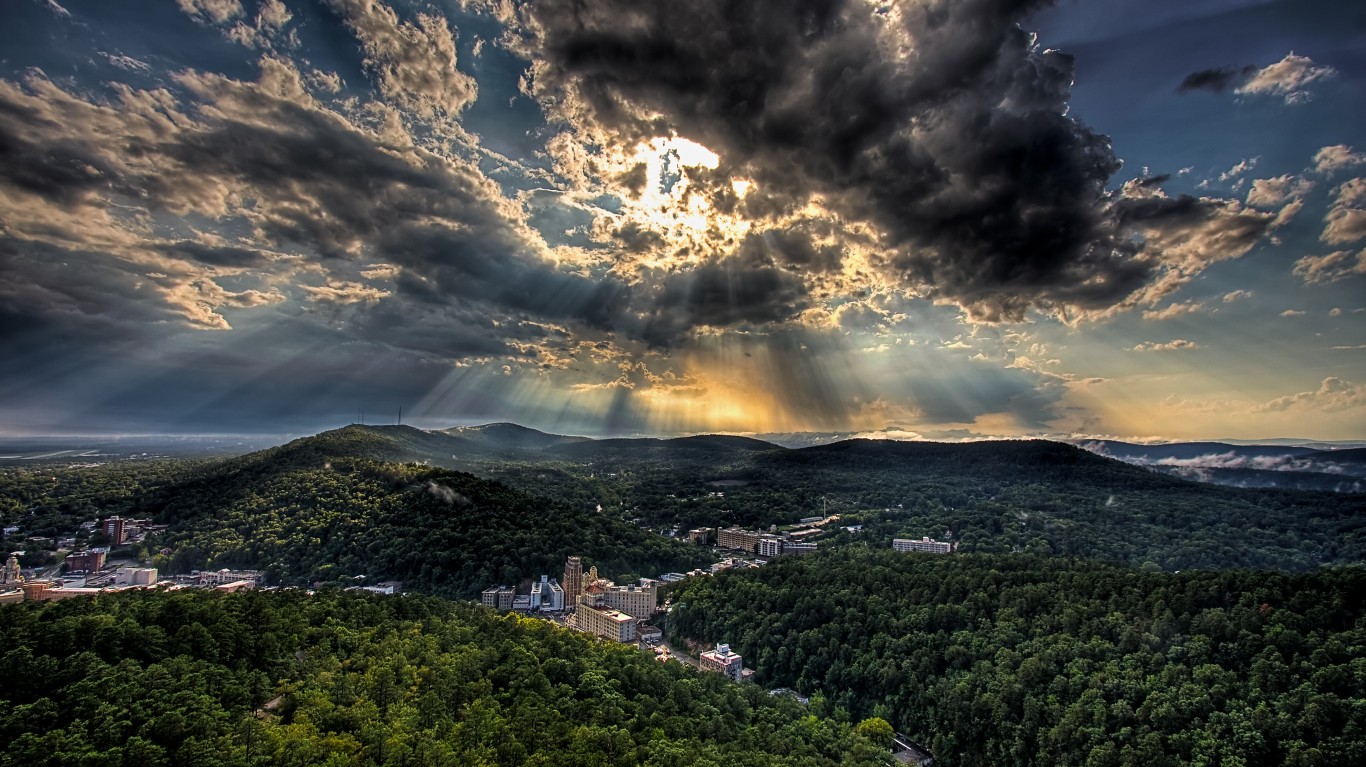
4. Arkansas: Hot Springs
> Concentrated poverty rate: 13.7% of poor pop. (2,500 residents)
> Overall poverty rate: 19.1% (state: 18.1%)
> Neighborhoods with concentrated poverty: 2 out of 20
> Unemployment: 13.4% (poor neighborhoods) 8.8% (all other)
[in-text-ad-2]
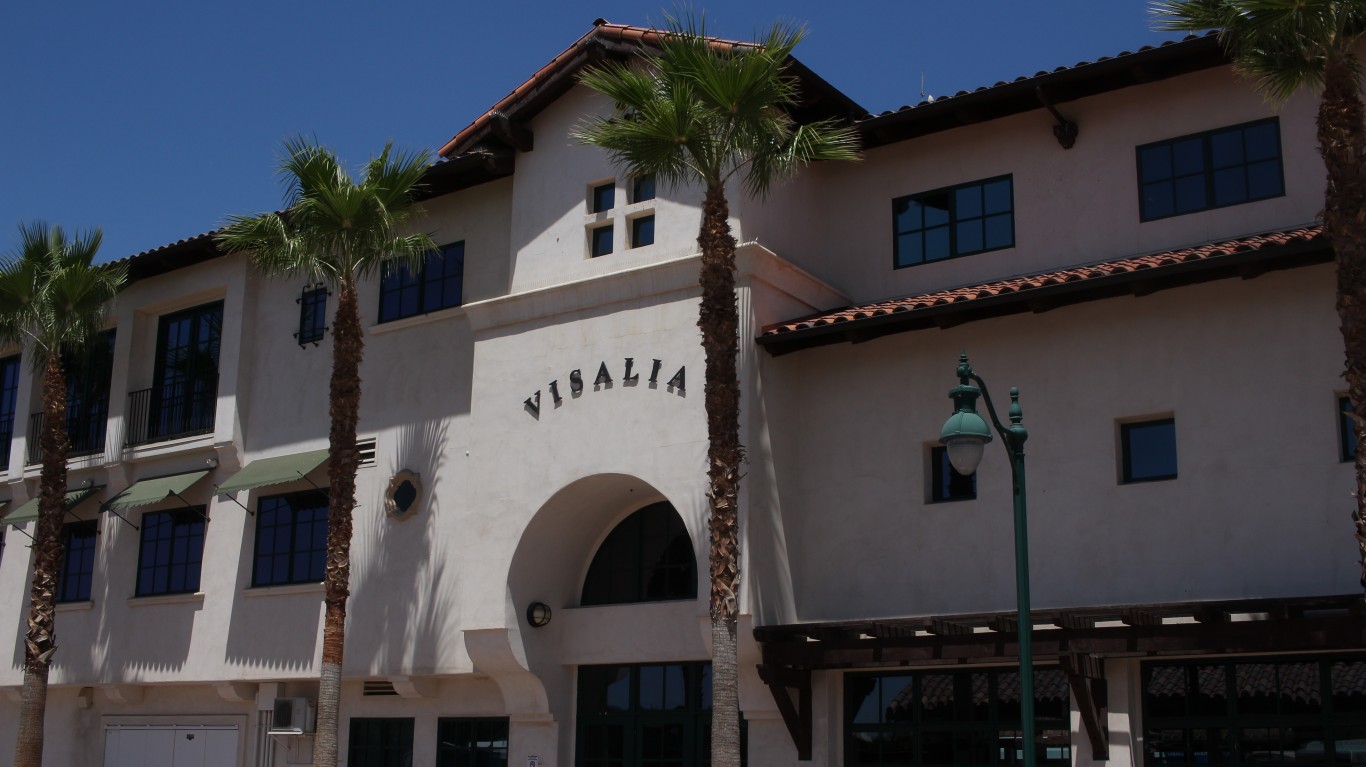
5. California: Visalia-Porterville
> Concentrated poverty rate: 31.1% of poor pop. (38,221 residents)
> Overall poverty rate: 27.1% (state: 15.1%)
> Neighborhoods with concentrated poverty: 15 out of 78
> Unemployment: 14.9% (poor neighborhoods) 9.1% (all other)
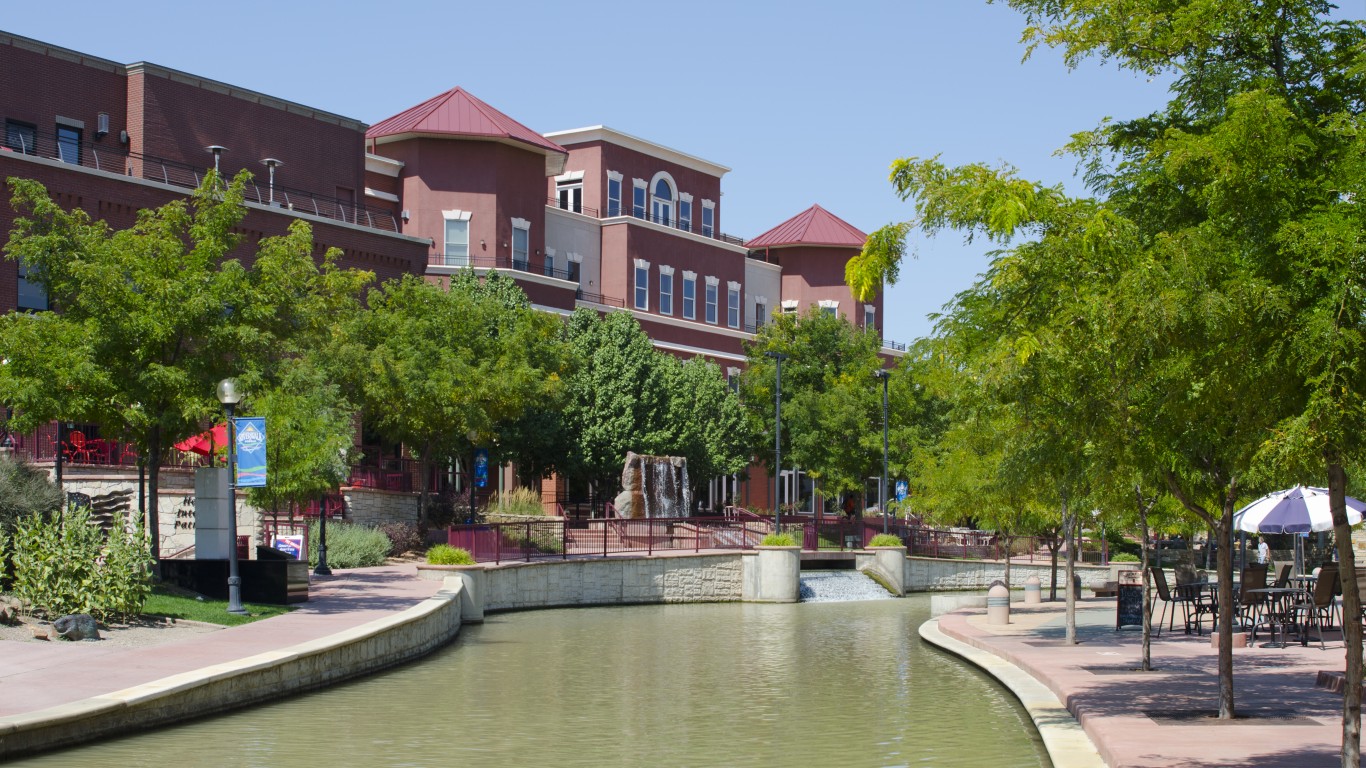
6. Colorado: Pueblo
> Concentrated poverty rate: 14.8% of poor pop. (4,662 residents)
> Overall poverty rate: 19.8% (state: 11.5%)
> Neighborhoods with concentrated poverty: 4 out of 53
> Unemployment: 12.2% (poor neighborhoods) 9.0% (all other)
[in-text-ad]
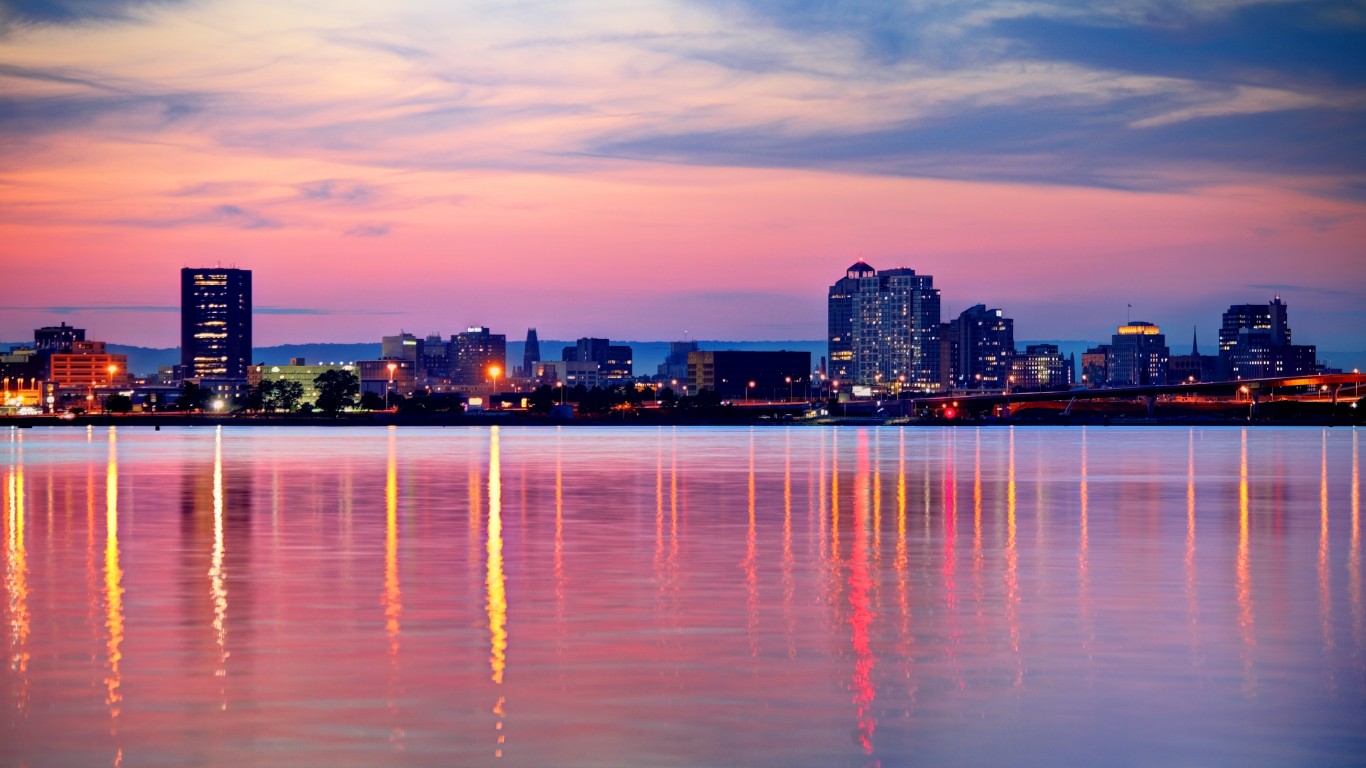
7. Connecticut: New Haven-Milford
> Concentrated poverty rate: 14.4% of poor pop. (14,490 residents)
> Overall poverty rate: 12.1% (state: 10.1%)
> Neighborhoods with concentrated poverty: 11 out of 186
> Unemployment: 17.2% (poor neighborhoods) 7.6% (all other)
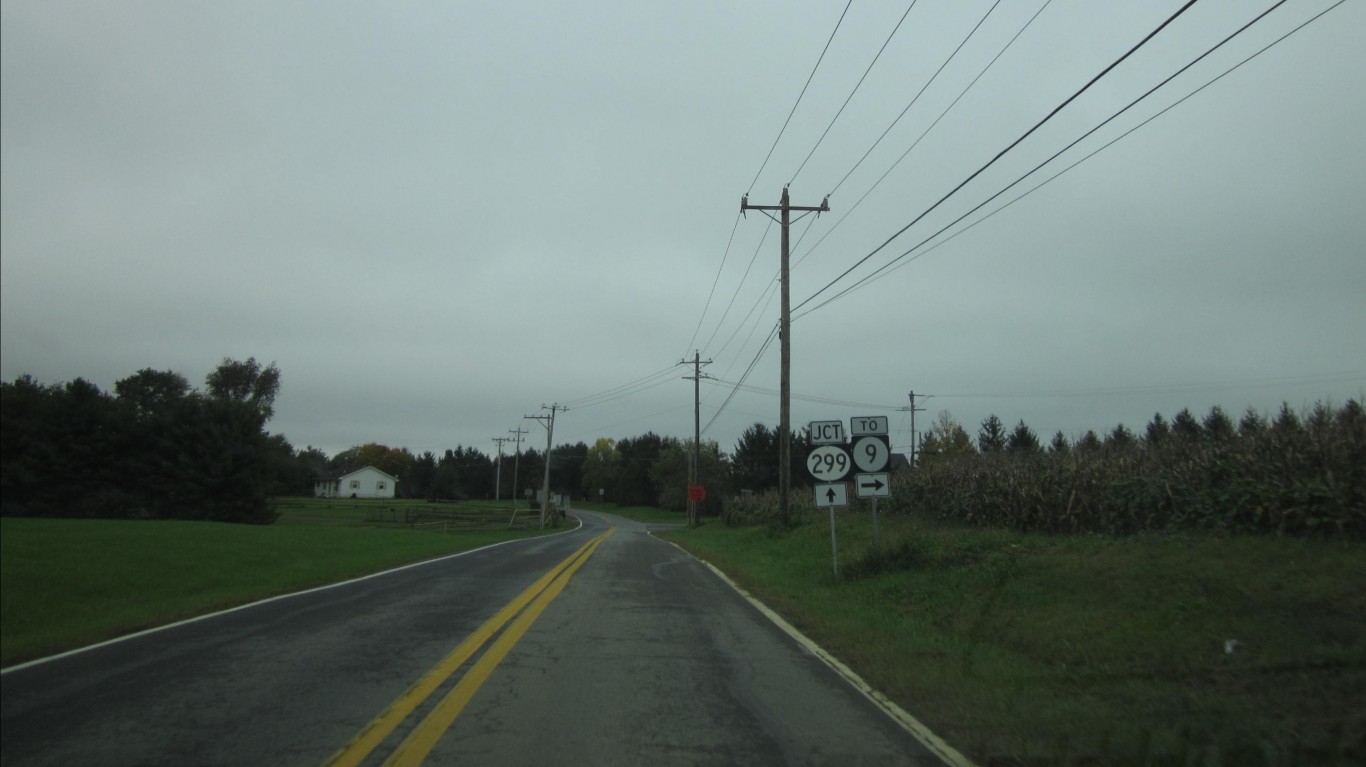
8. Delaware: no metro area with concentrated poverty
> State poverty rate: 12.1%
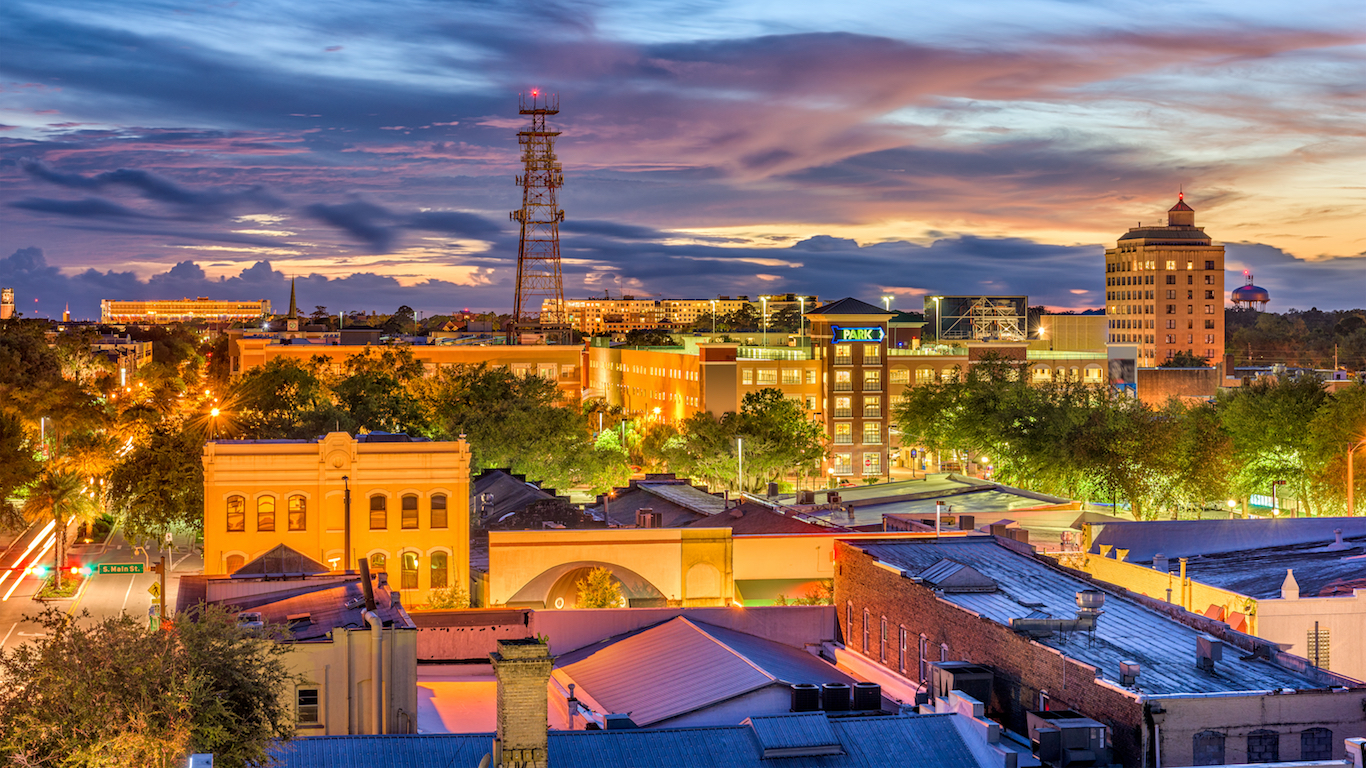
9. Florida: Gainesville
> Concentrated poverty rate: 21.6% of poor pop. (13,016 residents)
> Overall poverty rate: 23.1% (state: 15.5%)
> Neighborhoods with concentrated poverty: 8 out of 53
> Unemployment: 6.1% (poor neighborhoods) 6.5% (all other)
[in-text-ad-2]
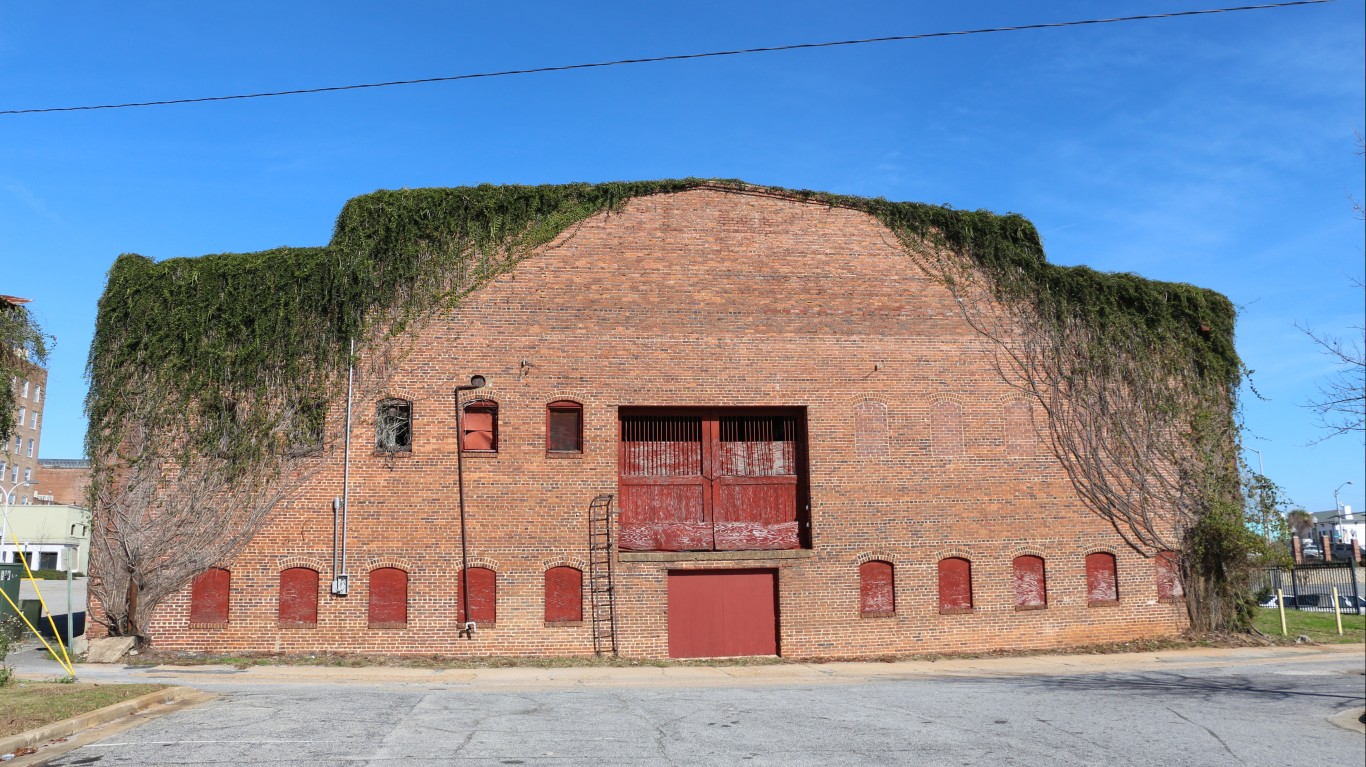
10. Georgia: Albany
> Concentrated poverty rate: 43.6% of poor pop. (16,646 residents)
> Overall poverty rate: 25.7% (state: 16.9%)
> Neighborhoods with concentrated poverty: 10 out of 43
> Unemployment: 25.0% (poor neighborhoods) 9.5% (all other)
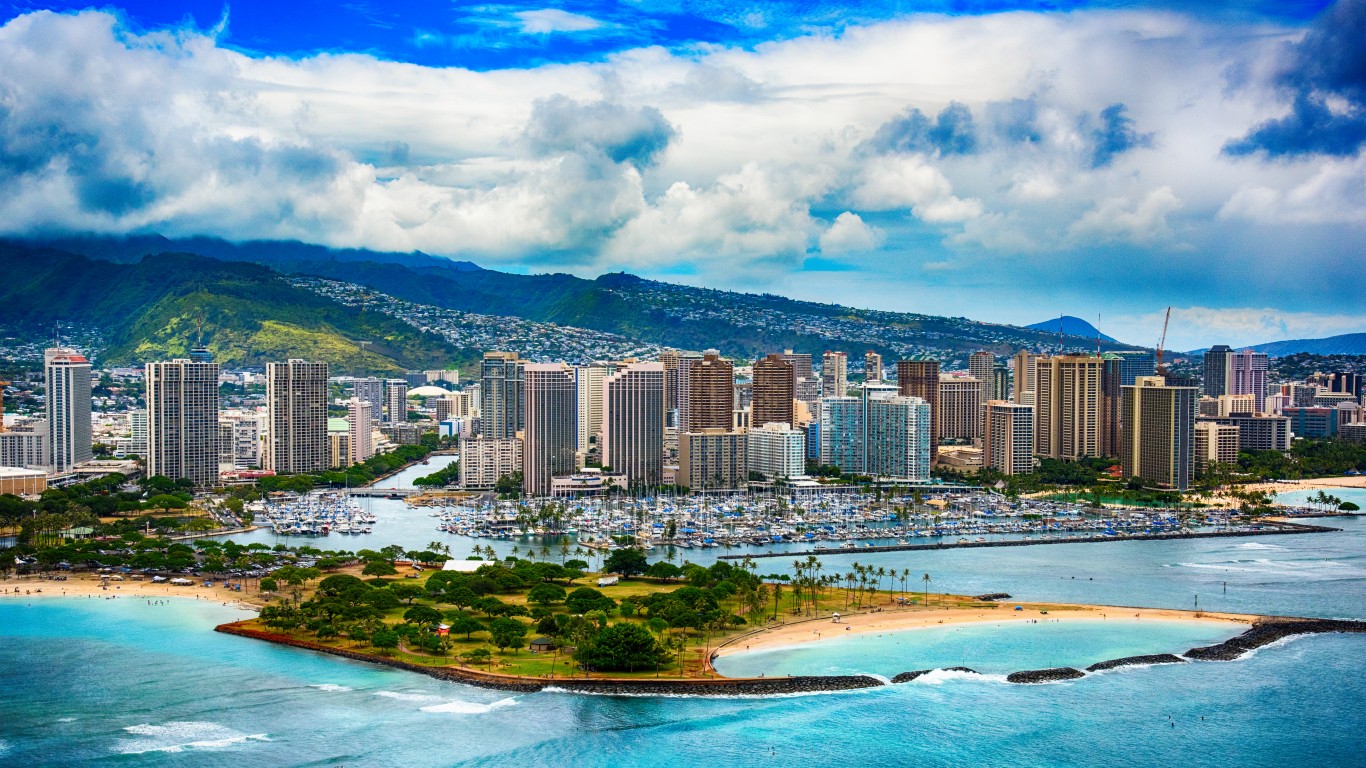
11. Hawaii: Urban Honolulu
> Concentrated poverty rate: 2.1% of poor pop. (1,860 residents)
> Overall poverty rate: 9.1% (state: 10.3%)
> Neighborhoods with concentrated poverty: 3 out of 228
> Unemployment: 12.6% (poor neighborhoods) 4.7% (all other)
[in-text-ad]
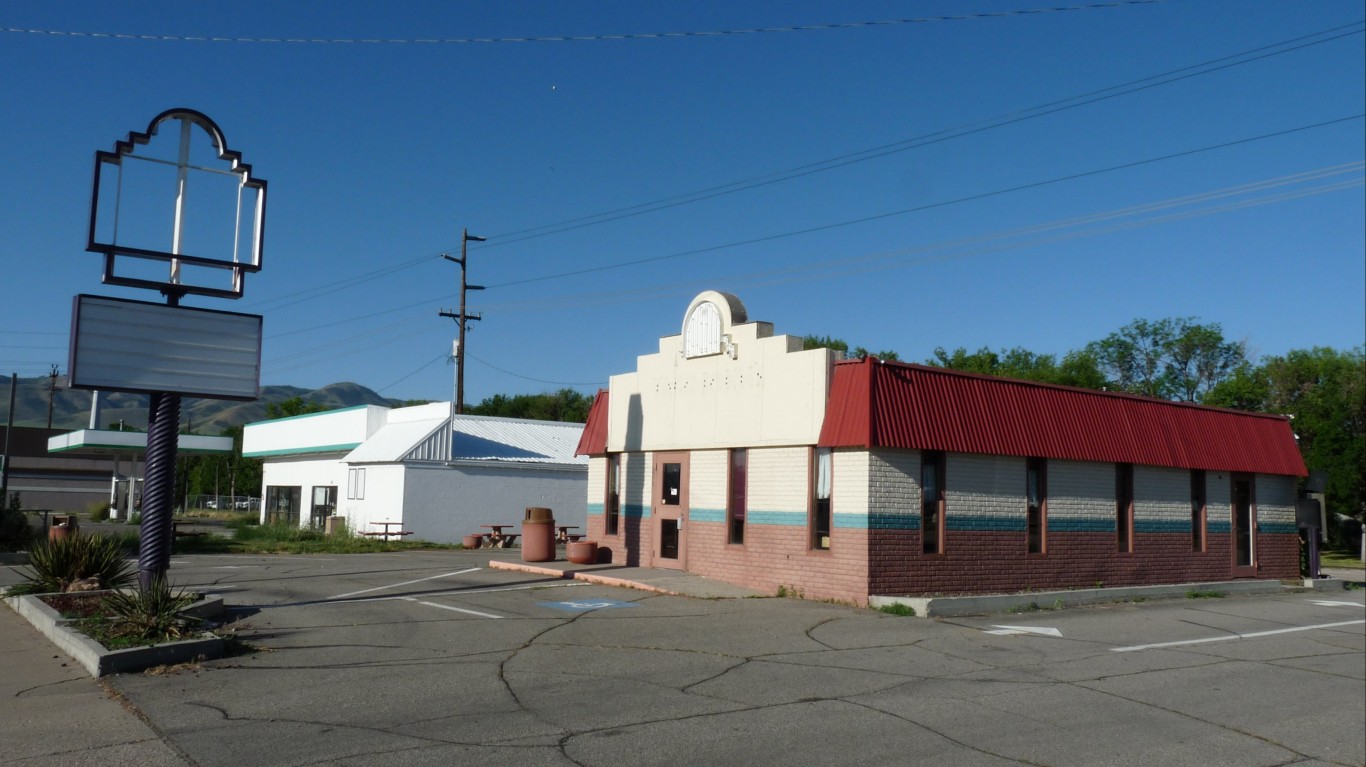
12. Idaho: Pocatello
> Concentrated poverty rate: 8.9% of poor pop. (1,292 residents)
> Overall poverty rate: 17.6% (state: 14.5%)
> Neighborhoods with concentrated poverty: 1 out of 21
> Unemployment: 5.3% (poor neighborhoods) 6.4% (all other)
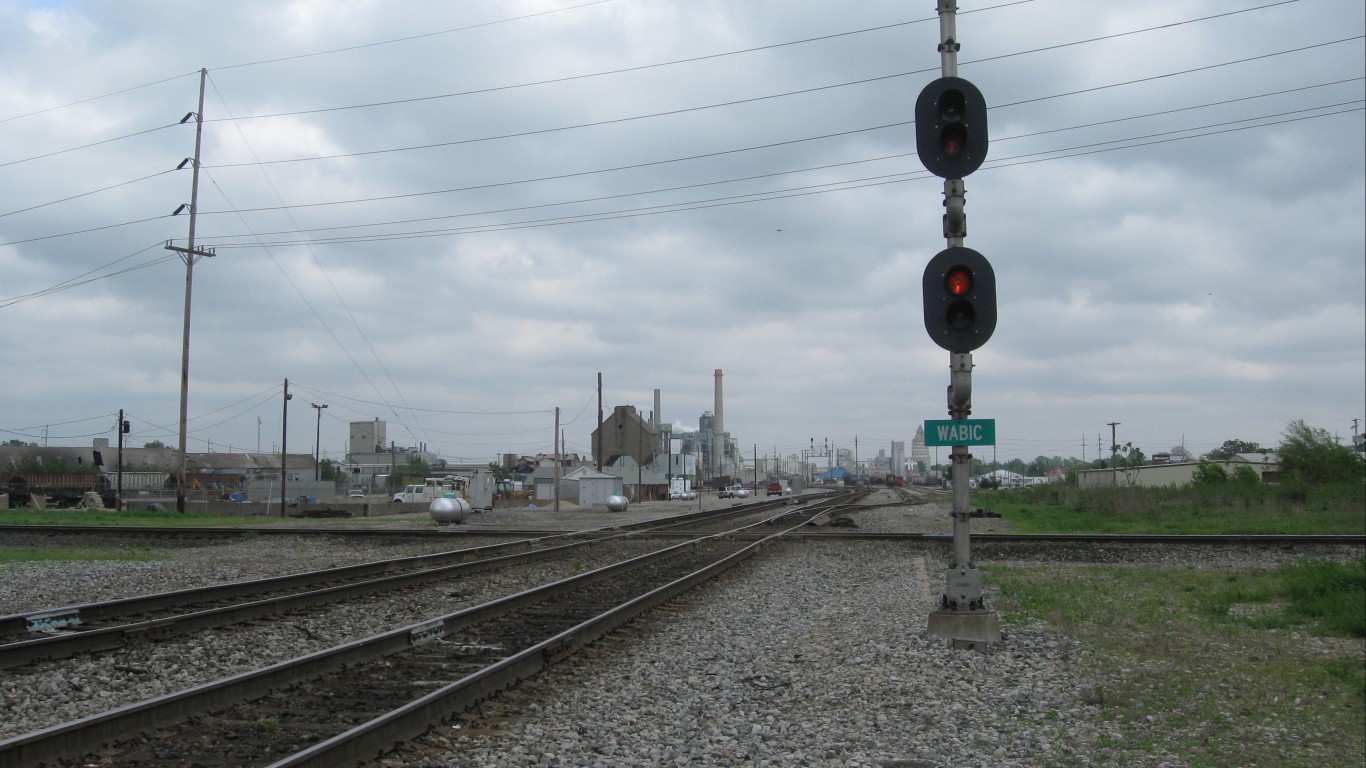
13. Illinois: Decatur
> Concentrated poverty rate: 32.1% of poor pop. (5,541 residents)
> Overall poverty rate: 16.6% (state: 13.5%)
> Neighborhoods with concentrated poverty: 6 out of 34
> Unemployment: 19.8% (poor neighborhoods) 8.2% (all other)
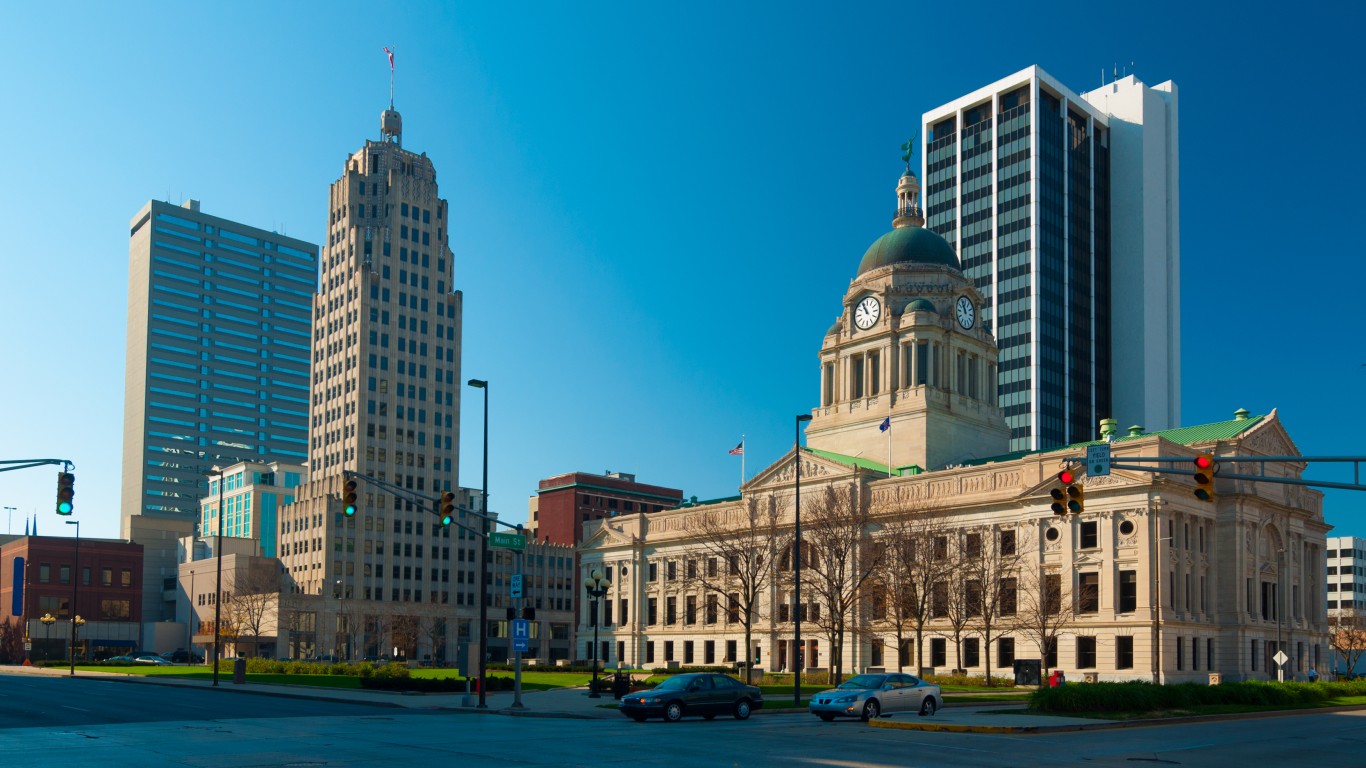
14. Indiana: Fort Wayne
> Concentrated poverty rate: 23.5% of poor pop. (13,944 residents)
> Overall poverty rate: 14.1% (state: 14.6%)
> Neighborhoods with concentrated poverty: 11 out of 108
> Unemployment: 13.1% (poor neighborhoods) 5.5% (all other)
[in-text-ad-2]
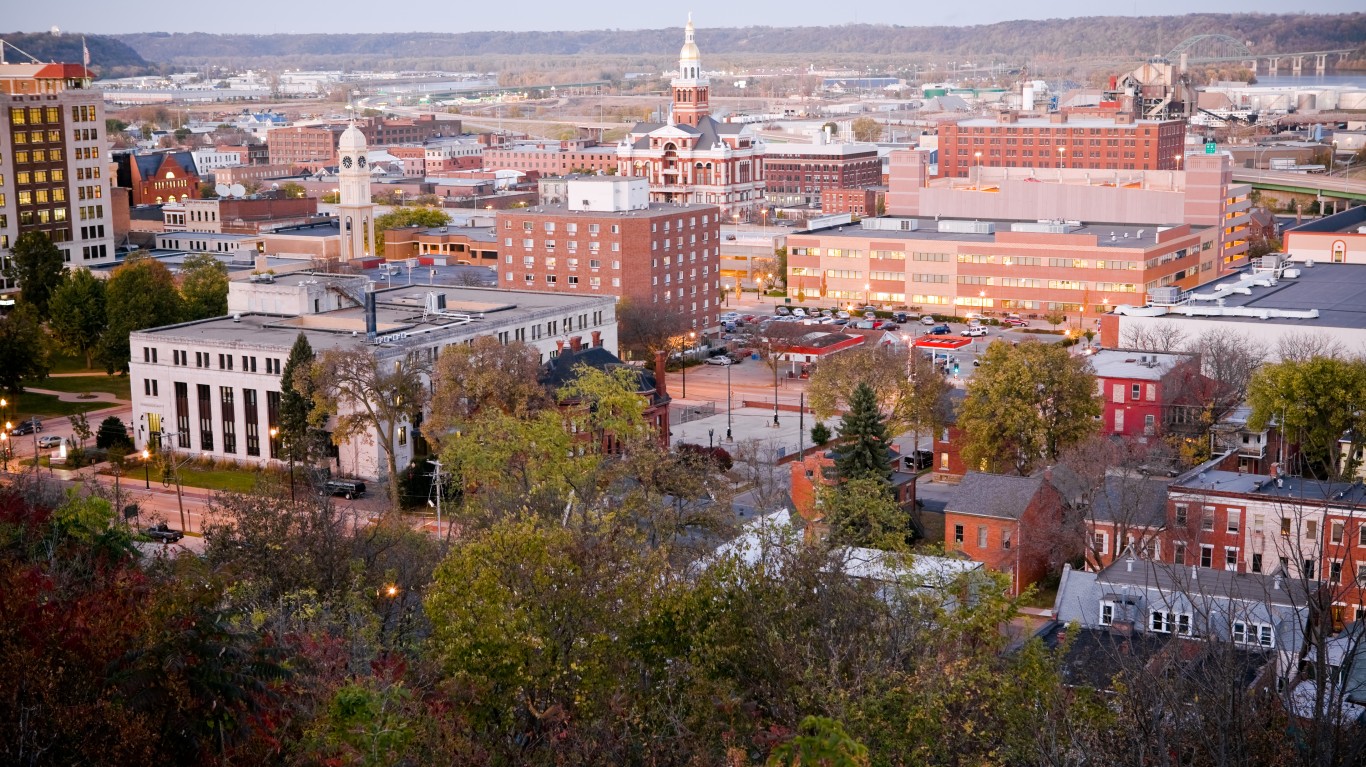
15. Iowa: Dubuque
> Concentrated poverty rate: 10.0% of poor pop. (1,109 residents)
> Overall poverty rate: 11.9% (state: 12.0%)
> Neighborhoods with concentrated poverty: 1 out of 26
> Unemployment: 4.0% (poor neighborhoods) 3.9% (all other)
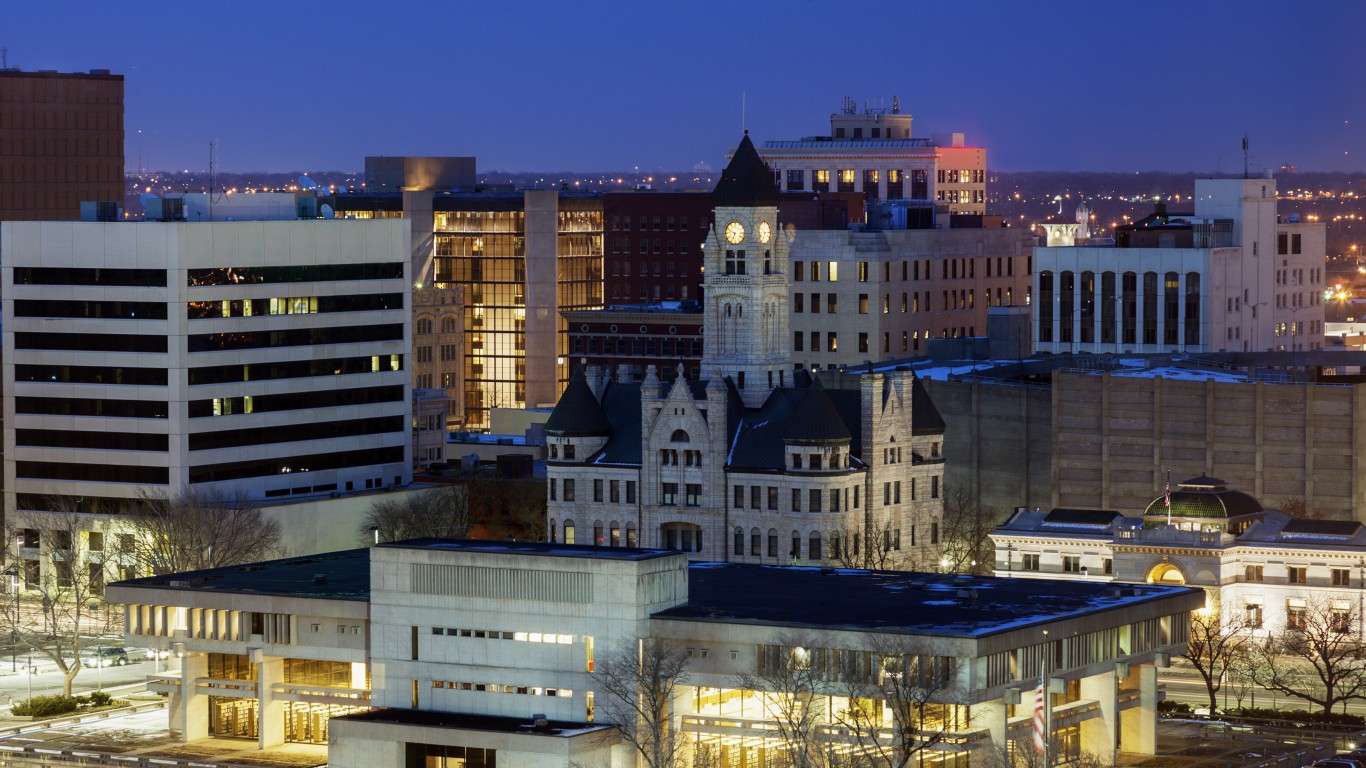
16. Kansas: Wichita
> Concentrated poverty rate: 9.7% of poor pop. (8,500 residents)
> Overall poverty rate: 13.9% (state: 12.8%)
> Neighborhoods with concentrated poverty: 7 out of 152
> Unemployment: 15.9% (poor neighborhoods) 5.1% (all other)
[in-text-ad]
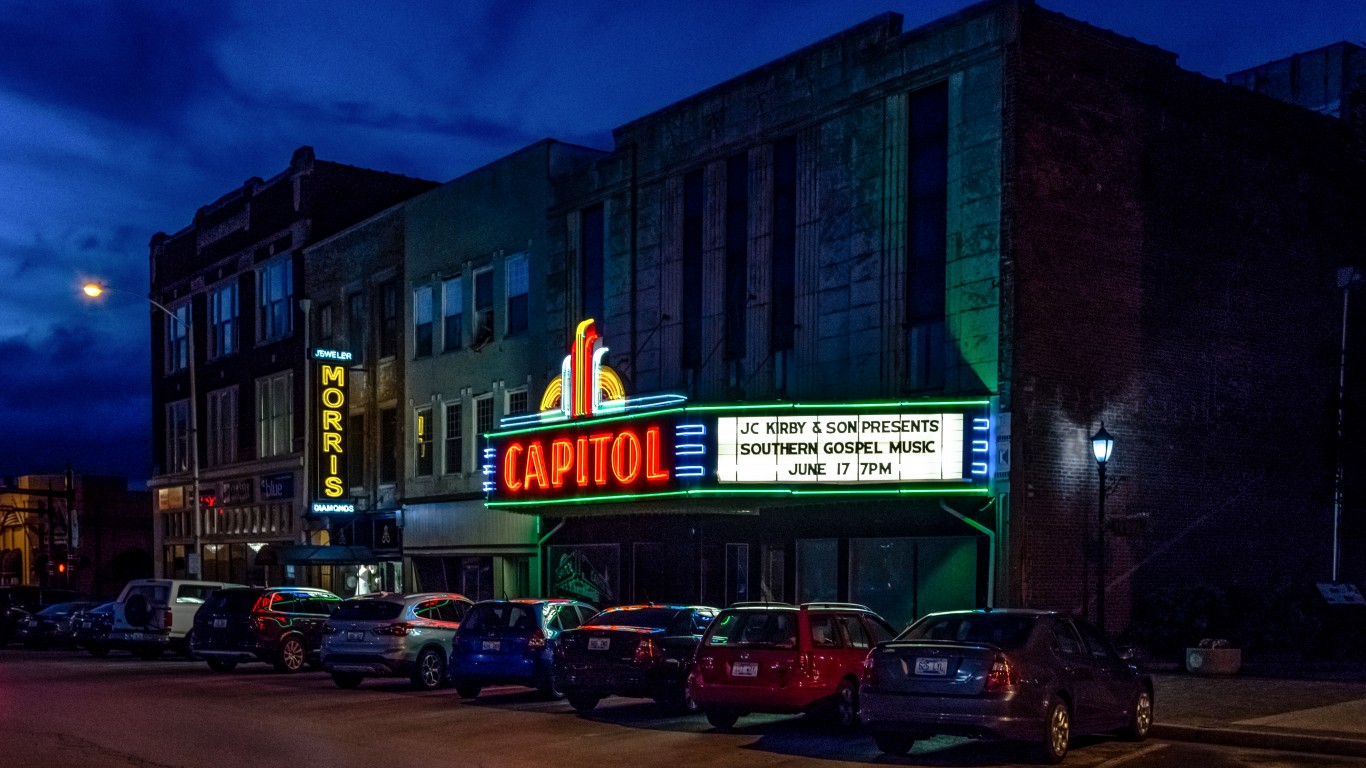
17. Kentucky: Bowling Green
> Concentrated poverty rate: 23.8% of poor pop. (7,176 residents)
> Overall poverty rate: 18.7% (state: 18.3%)
> Neighborhoods with concentrated poverty: 5 out of 37
> Unemployment: 6.7% (poor neighborhoods) 5.6% (all other)
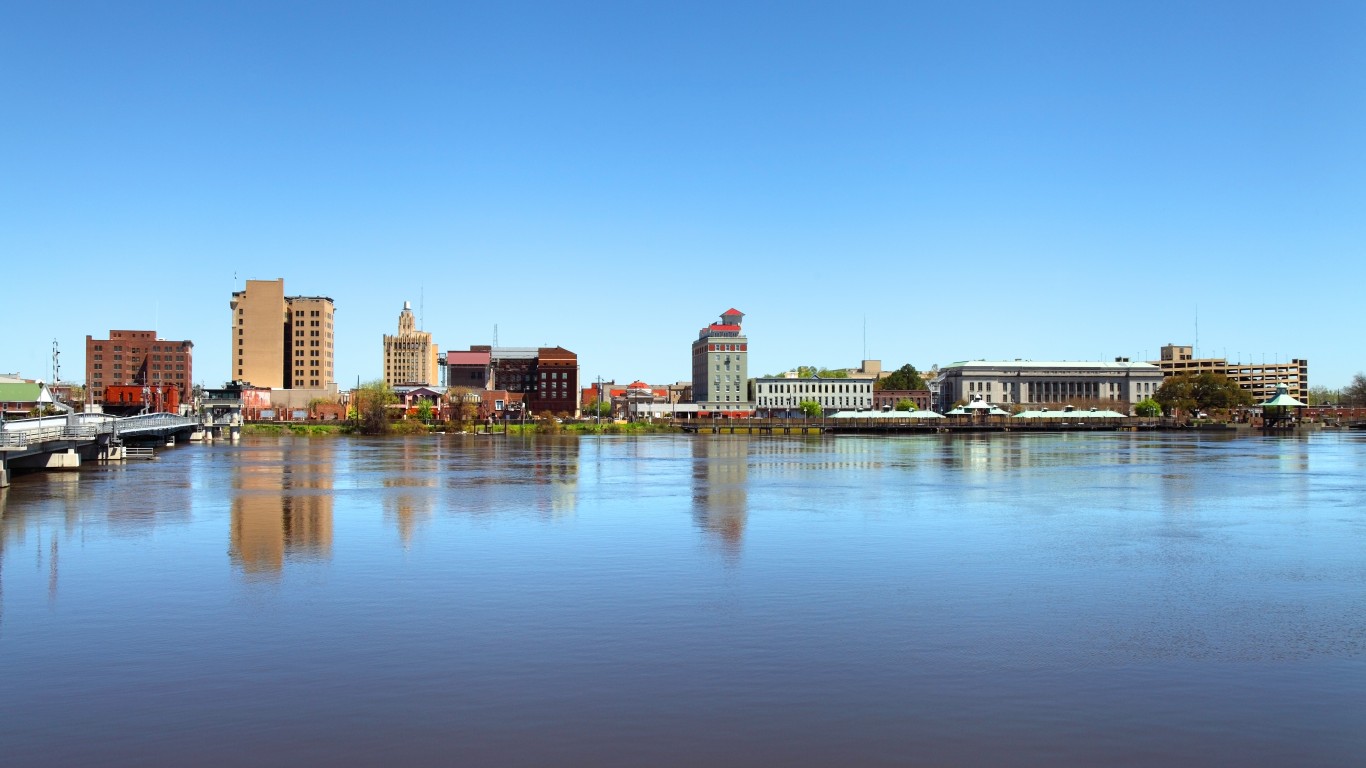
18. Louisiana: Monroe
> Concentrated poverty rate: 35.4% of poor pop. (14,598 residents)
> Overall poverty rate: 24.2% (state: 19.6%)
> Neighborhoods with concentrated poverty: 11 out of 44
> Unemployment: 15.5% (poor neighborhoods) 5.5% (all other)
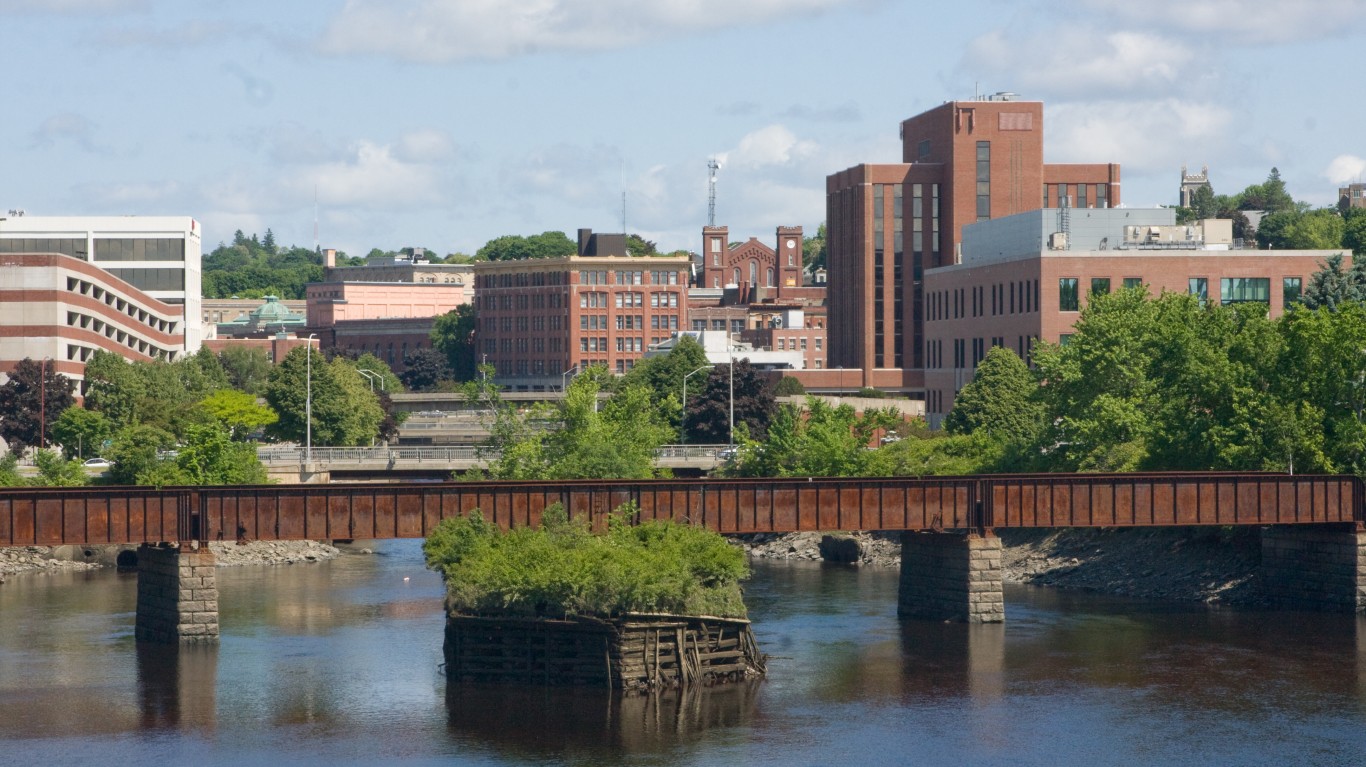
19. Maine: Bangor
> Concentrated poverty rate: 19.0% of poor pop. (4,393 residents)
> Overall poverty rate: 15.9% (state: 12.9%)
> Neighborhoods with concentrated poverty: 2 out of 45
> Unemployment: 11.6% (poor neighborhoods) 6.1% (all other)
[in-text-ad-2]

20. Maryland: Baltimore-Columbia-Towson
> Concentrated poverty rate: 8.8% of poor pop. (25,232 residents)
> Overall poverty rate: 10.5% (state: 9.7%)
> Neighborhoods with concentrated poverty: 26 out of 668
> Unemployment: 13.3% (poor neighborhoods) 6.1% (all other)
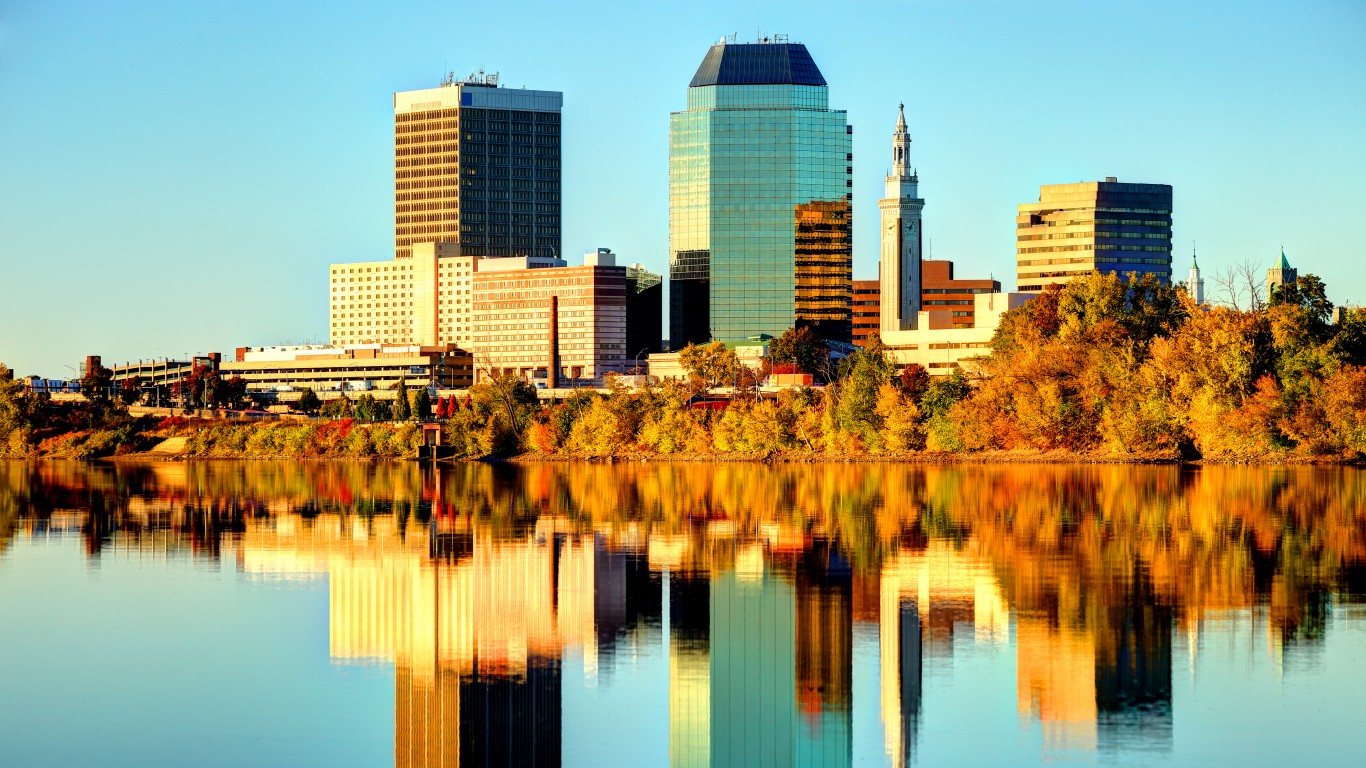
21. Massachusetts: Springfield
> Concentrated poverty rate: 26.1% of poor pop. (25,438 residents)
> Overall poverty rate: 16.4% (state: 11.1%)
> Neighborhoods with concentrated poverty: 15 out of 133
> Unemployment: 18.0% (poor neighborhoods) 6.8% (all other)
[in-text-ad]
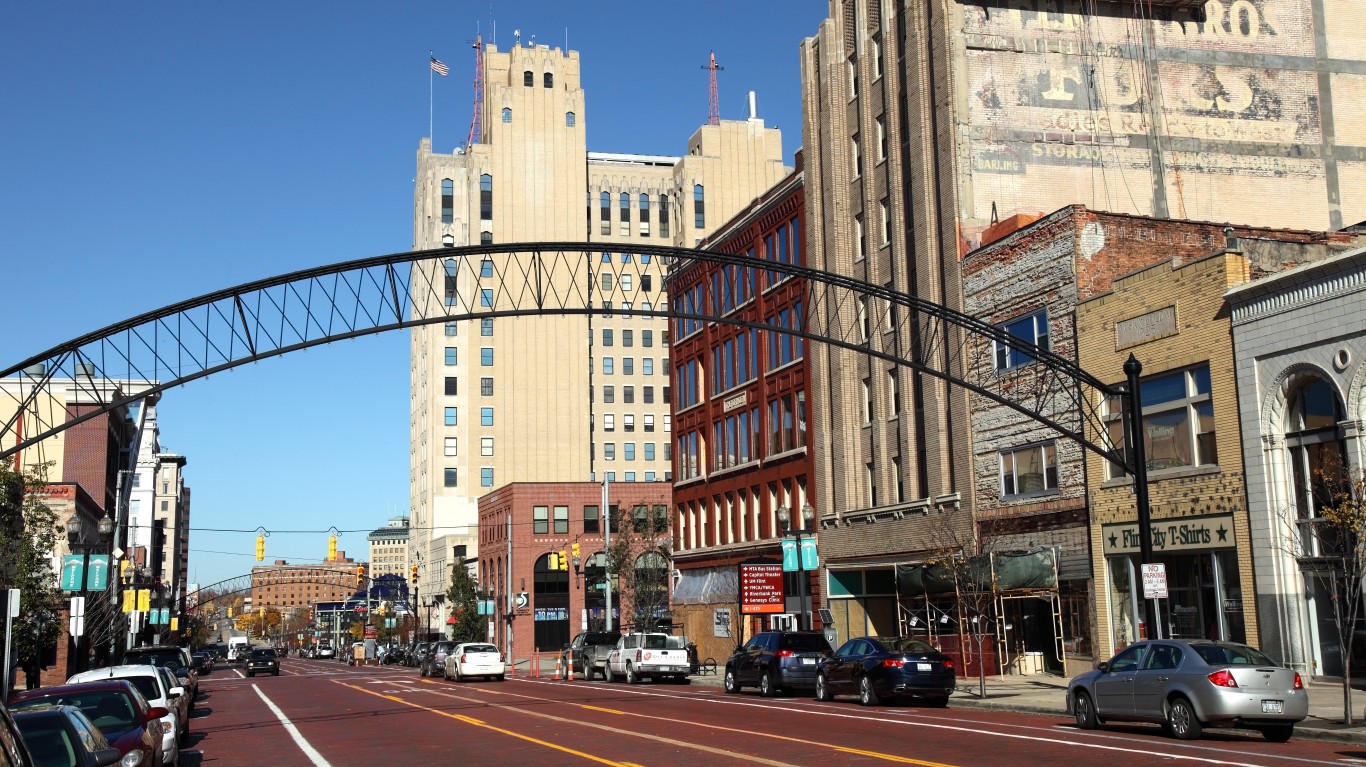
22. Michigan: Flint
> Concentrated poverty rate: 38.1% of poor pop. (30,998 residents)
> Overall poverty rate: 20.0% (state: 15.6%)
> Neighborhoods with concentrated poverty: 26 out of 129
> Unemployment: 23.2% (poor neighborhoods) 9.1% (all other)

23. Minnesota: St. Cloud
> Concentrated poverty rate: 20.1% of poor pop. (4,968 residents)
> Overall poverty rate: 13.3% (state: 10.5%)
> Neighborhoods with concentrated poverty: 1 out of 37
> Unemployment: 7.2% (poor neighborhoods) 4.1% (all other)
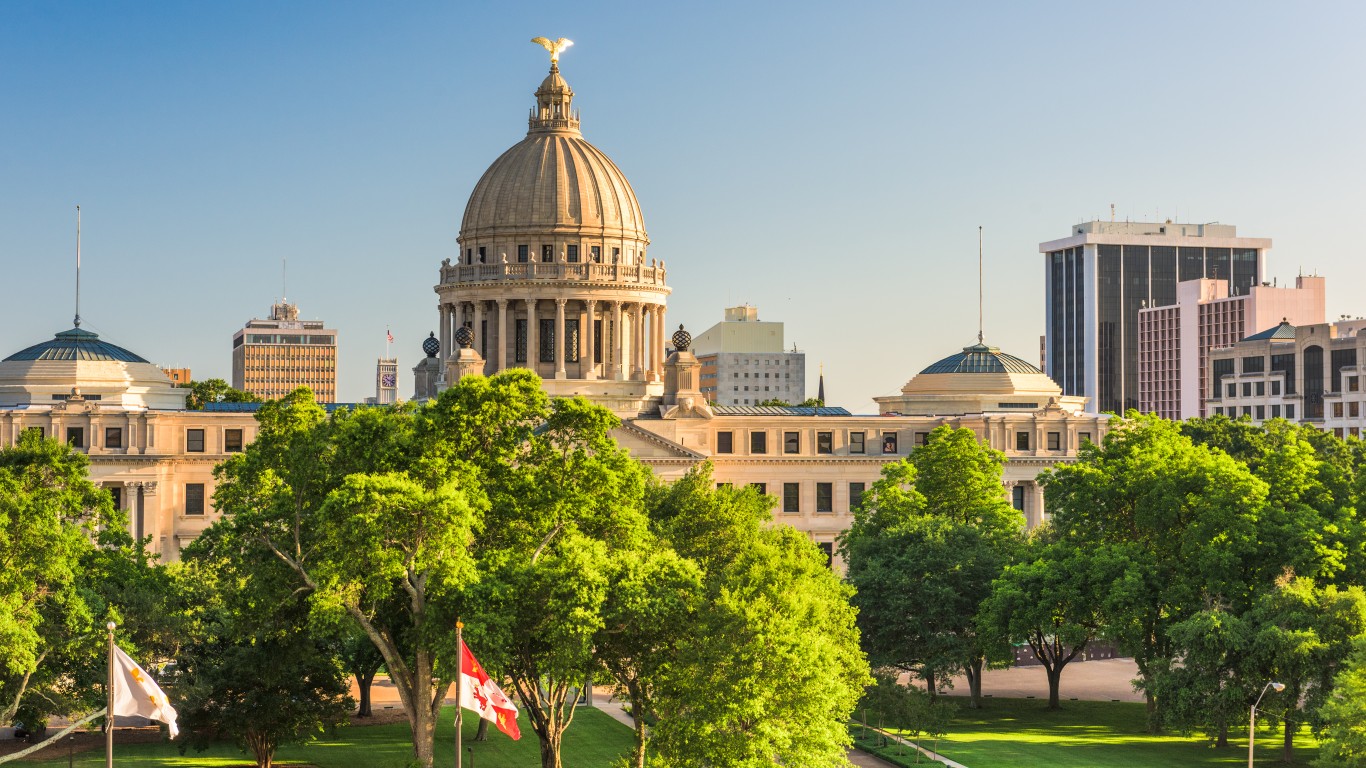
24. Mississippi: Jackson
> Concentrated poverty rate: 26.2% of poor pop. (26,951 residents)
> Overall poverty rate: 18.5% (state: 21.5%)
> Neighborhoods with concentrated poverty: 21 out of 127
> Unemployment: 16.7% (poor neighborhoods) 7.0% (all other)
[in-text-ad-2]

25. Missouri: Cape Girardeau
> Concentrated poverty rate: 30.4% of poor pop. (5,442 residents)
> Overall poverty rate: 19.1% (state: 14.6%)
> Neighborhoods with concentrated poverty: 5 out of 22
> Unemployment: 12.2% (poor neighborhoods) 4.5% (all other)
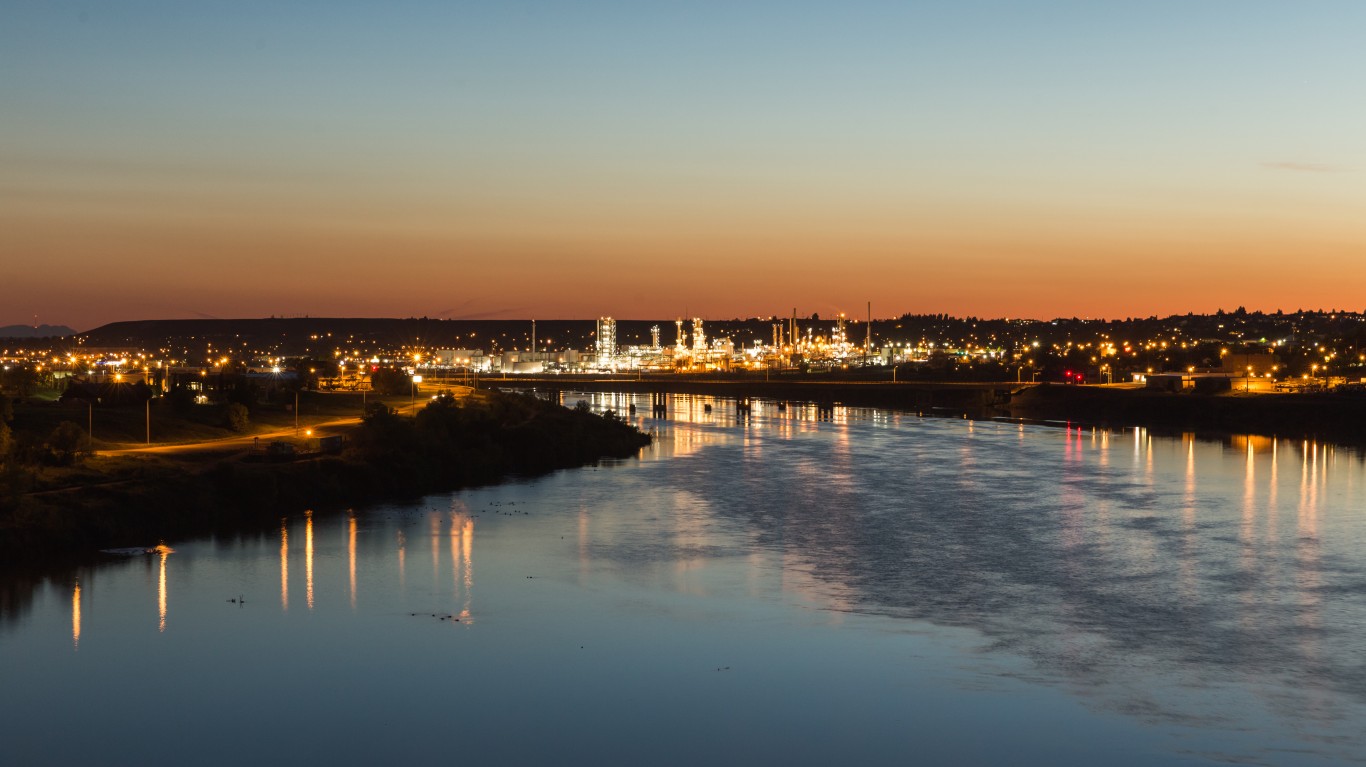
26. Montana: Great Falls
> Concentrated poverty rate: 11.2% of poor pop. (1,164 residents)
> Overall poverty rate: 13.1% (state: 14.4%)
> Neighborhoods with concentrated poverty: 1 out of 22
> Unemployment: 5.0% (poor neighborhoods) 4.6% (all other)
[in-text-ad]
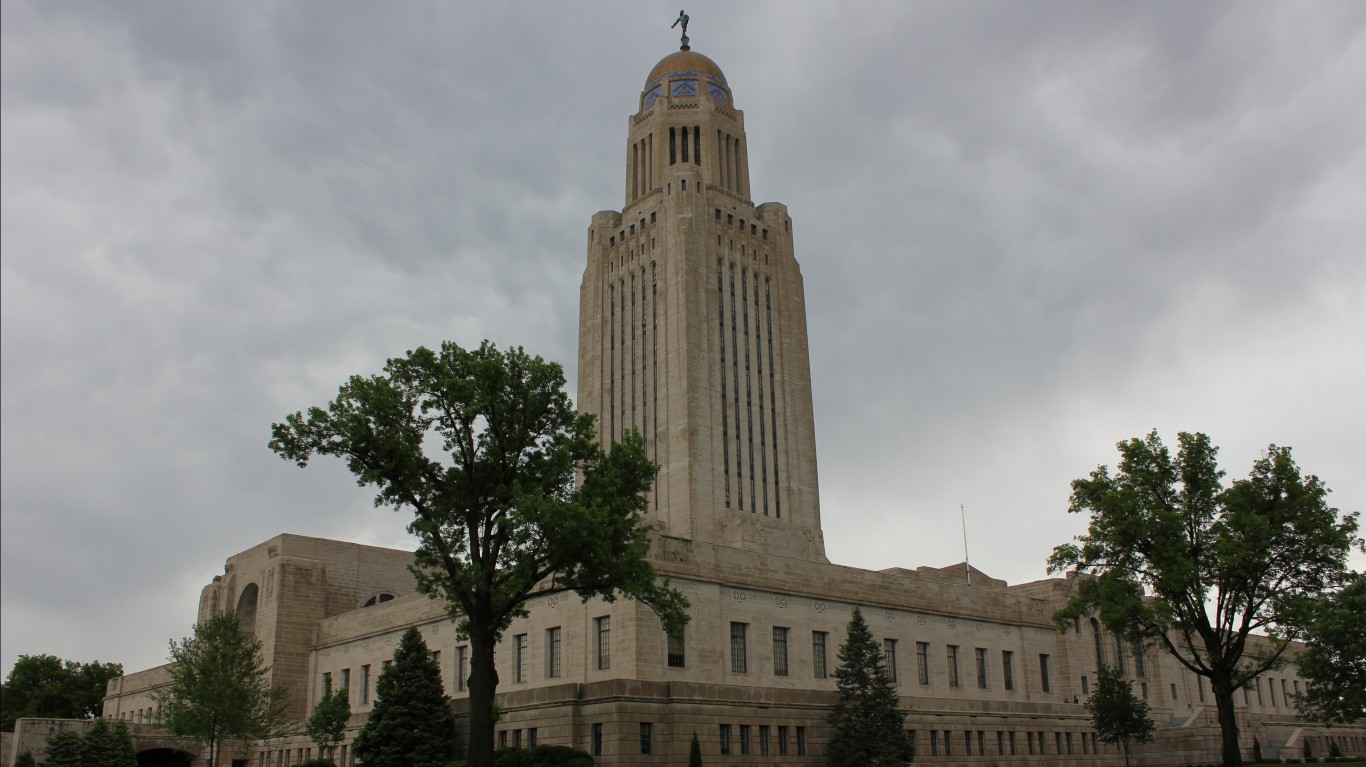
27. Nebraska: Lincoln
> Concentrated poverty rate: 15.8% of poor pop. (6,671 residents)
> Overall poverty rate: 13.7% (state: 12.0%)
> Neighborhoods with concentrated poverty: 6 out of 73
> Unemployment: 7.4% (poor neighborhoods) 3.2% (all other)

28. Nevada: Las Vegas-Henderson-Paradise
> Concentrated poverty rate: 6.5% of poor pop. (19,802 residents)
> Overall poverty rate: 14.6% (state: 14.2%)
> Neighborhoods with concentrated poverty: 13 out of 487
> Unemployment: 15.7% (poor neighborhoods) 8.3% (all other)

29. New Hampshire: no metro area with concentrated poverty
> State poverty rate: 8.1%
[in-text-ad-2]

30. New Jersey: Atlantic City-Hammonton
> Concentrated poverty rate: 23.9% of poor pop. (9,739 residents)
> Overall poverty rate: 15.3% (state: 10.7%)
> Neighborhoods with concentrated poverty: 9 out of 68
> Unemployment: 17.4% (poor neighborhoods) 10.4% (all other)
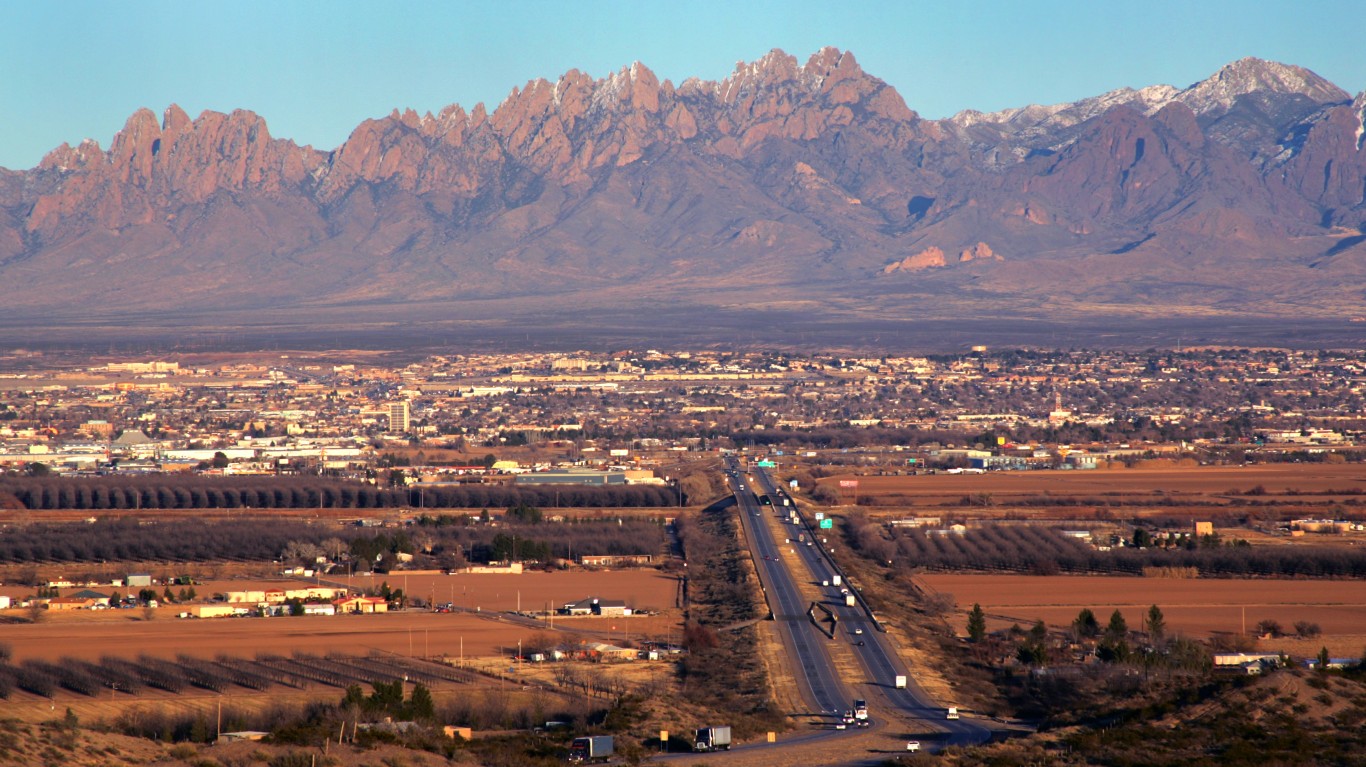
31. New Mexico: Las Cruces
> Concentrated poverty rate: 26.3% of poor pop. (15,312 residents)
> Overall poverty rate: 27.9% (state: 20.6%)
> Neighborhoods with concentrated poverty: 6 out of 40
> Unemployment: 13.4% (poor neighborhoods) 8.2% (all other)
[in-text-ad]
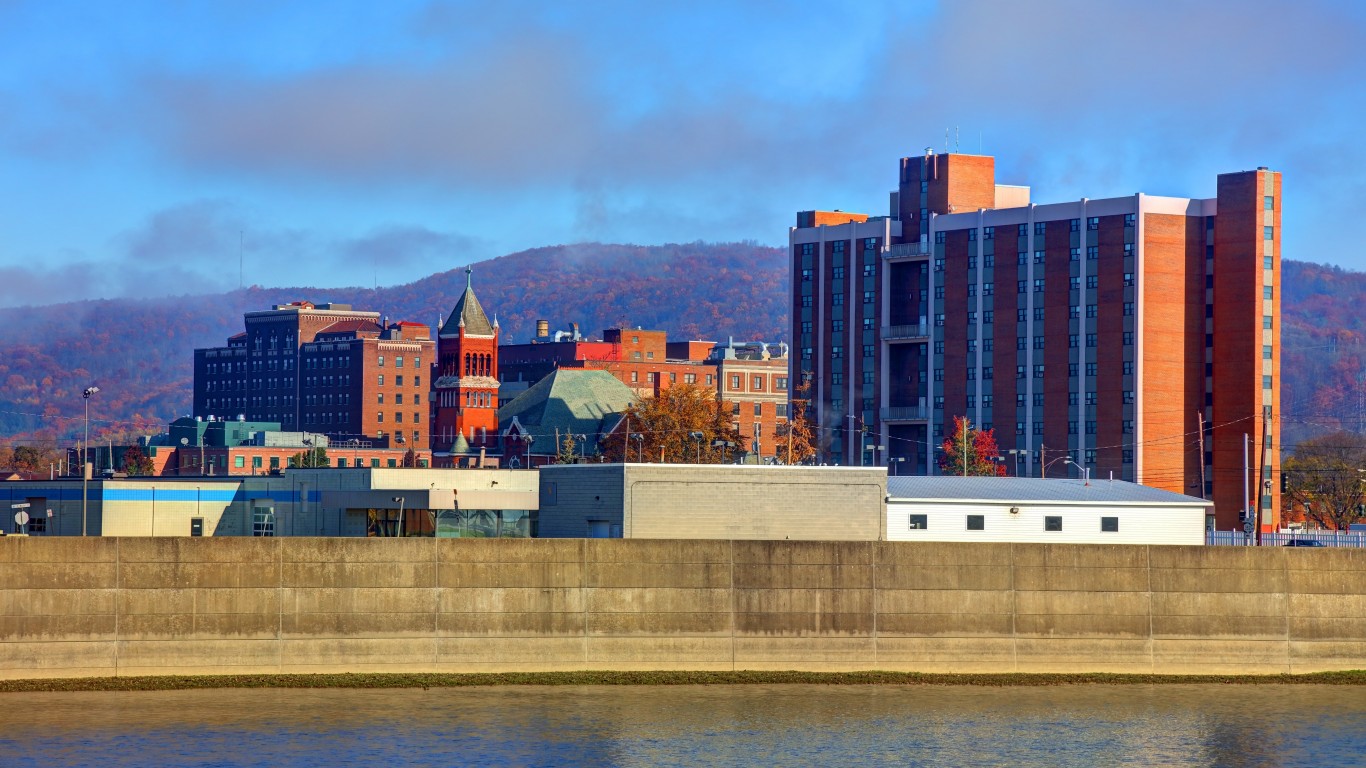
32. New York: Elmira
> Concentrated poverty rate: 30.0% of poor pop. (3,875 residents)
> Overall poverty rate: 15.8% (state: 15.1%)
> Neighborhoods with concentrated poverty: 4 out of 22
> Unemployment: 8.3% (poor neighborhoods) 5.0% (all other)
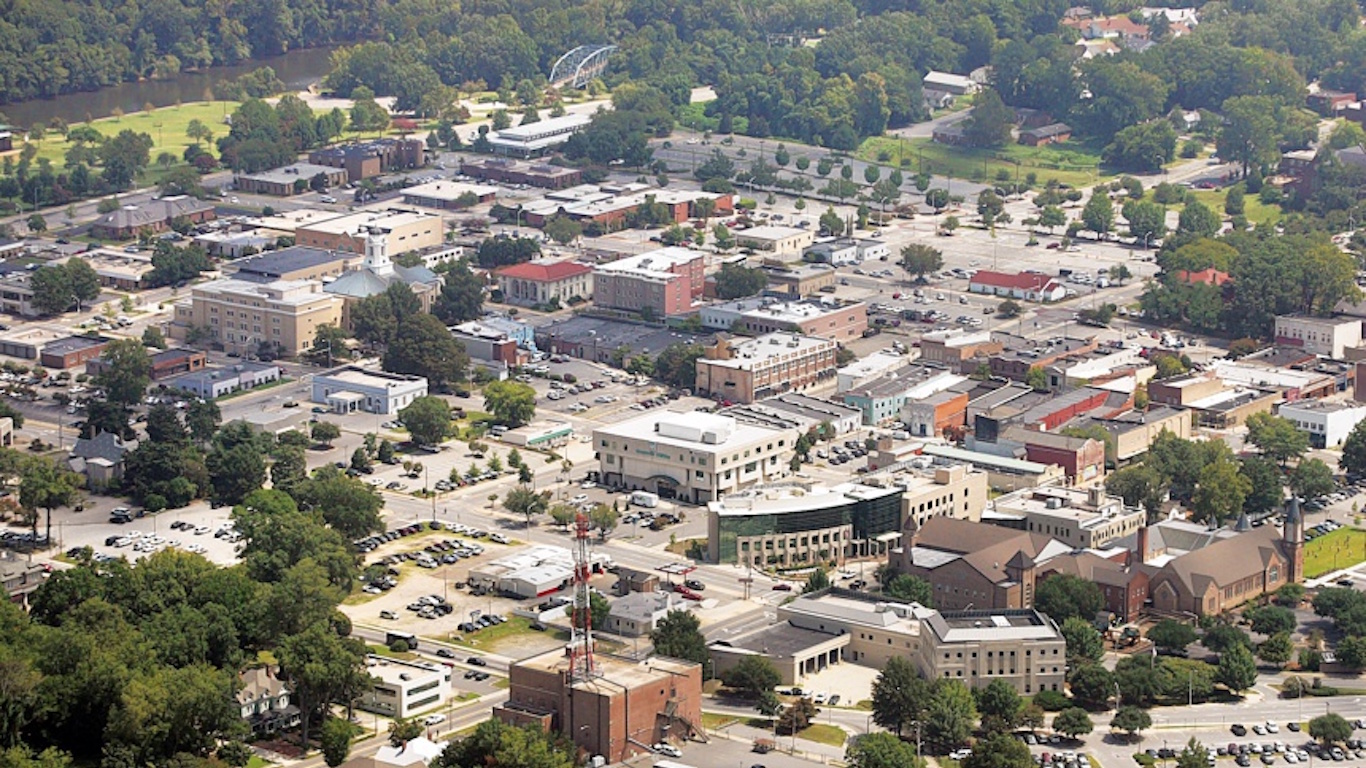
33. North Carolina: Greenville
> Concentrated poverty rate: 17.9% of poor pop. (7,389 residents)
> Overall poverty rate: 24.3% (state: 16.1%)
> Neighborhoods with concentrated poverty: 3 out of 29
> Unemployment: 13.2% (poor neighborhoods) 9.4% (all other)
[in-text-ad-2]

35. Ohio: Youngstown-Warren-Boardman
> Concentrated poverty rate: 27.7% of poor pop. (24,453 residents)
> Overall poverty rate: 16.7% (state: 14.9%)
> Neighborhoods with concentrated poverty: 23 out of 155
> Unemployment: 18.5% (poor neighborhoods) 6.1% (all other)
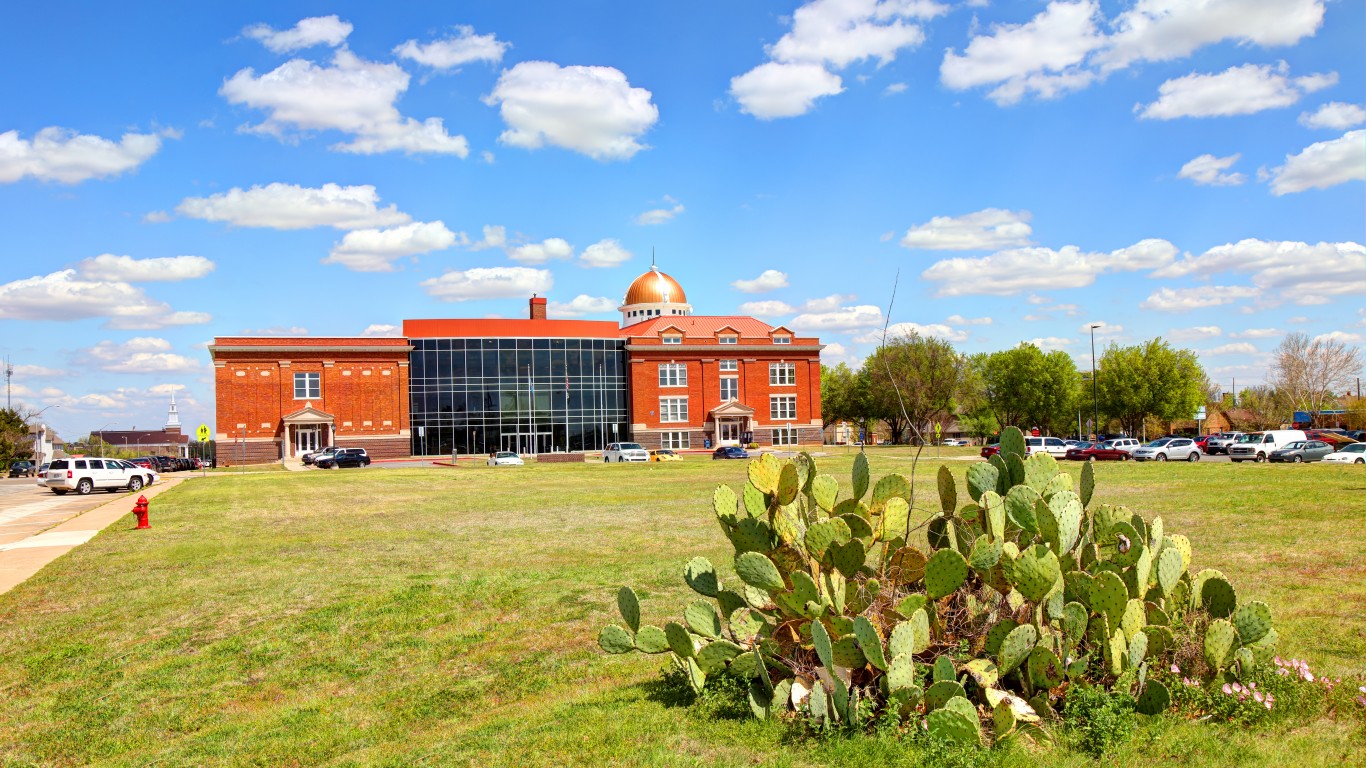
36. Oklahoma: Lawton
> Concentrated poverty rate: 19.2% of poor pop. (3,803 residents)
> Overall poverty rate: 16.6% (state: 16.2%)
> Neighborhoods with concentrated poverty: 4 out of 33
> Unemployment: 12.5% (poor neighborhoods) 8.2% (all other)
[in-text-ad]
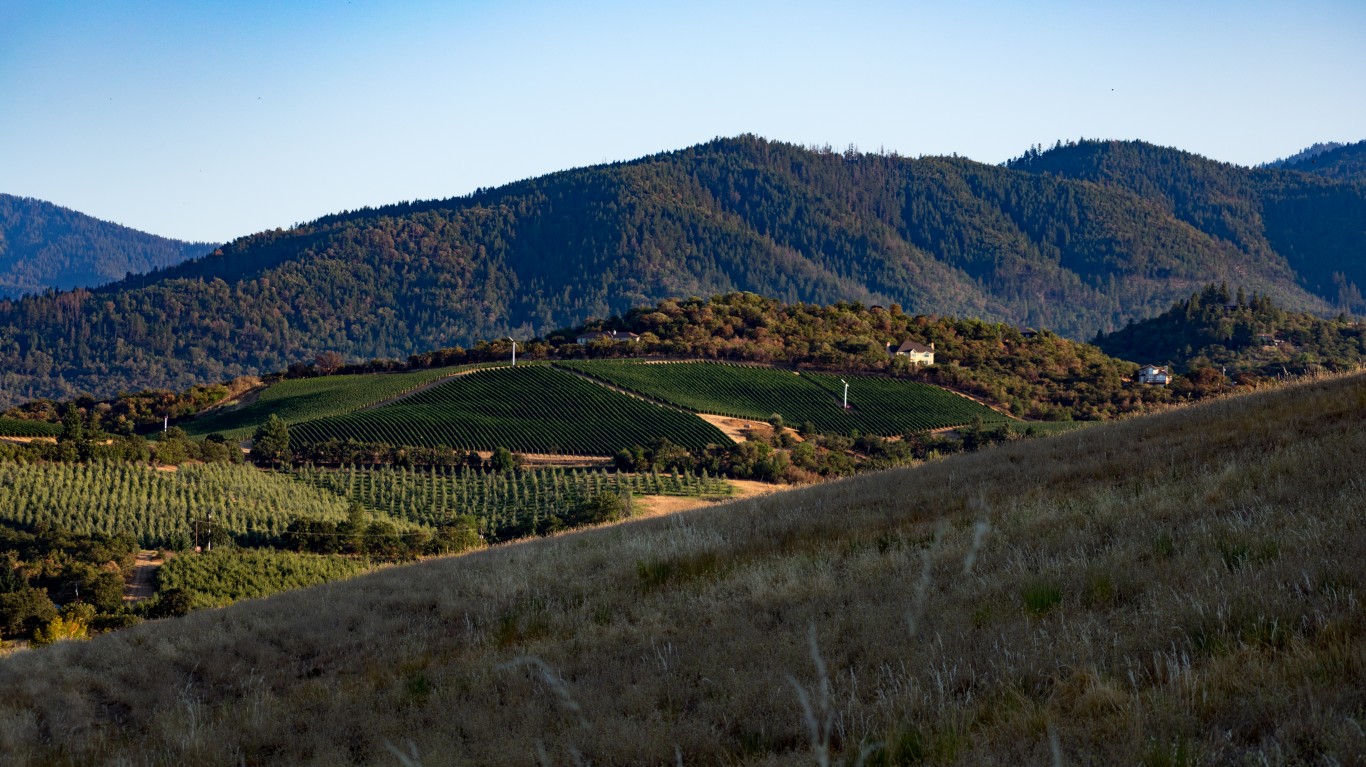
37. Oregon: Medford
> Concentrated poverty rate: 7.5% of poor pop. (2,629 residents)
> Overall poverty rate: 16.7% (state: 14.9%)
> Neighborhoods with concentrated poverty: 2 out of 41
> Unemployment: 14.6% (poor neighborhoods) 7.2% (all other)
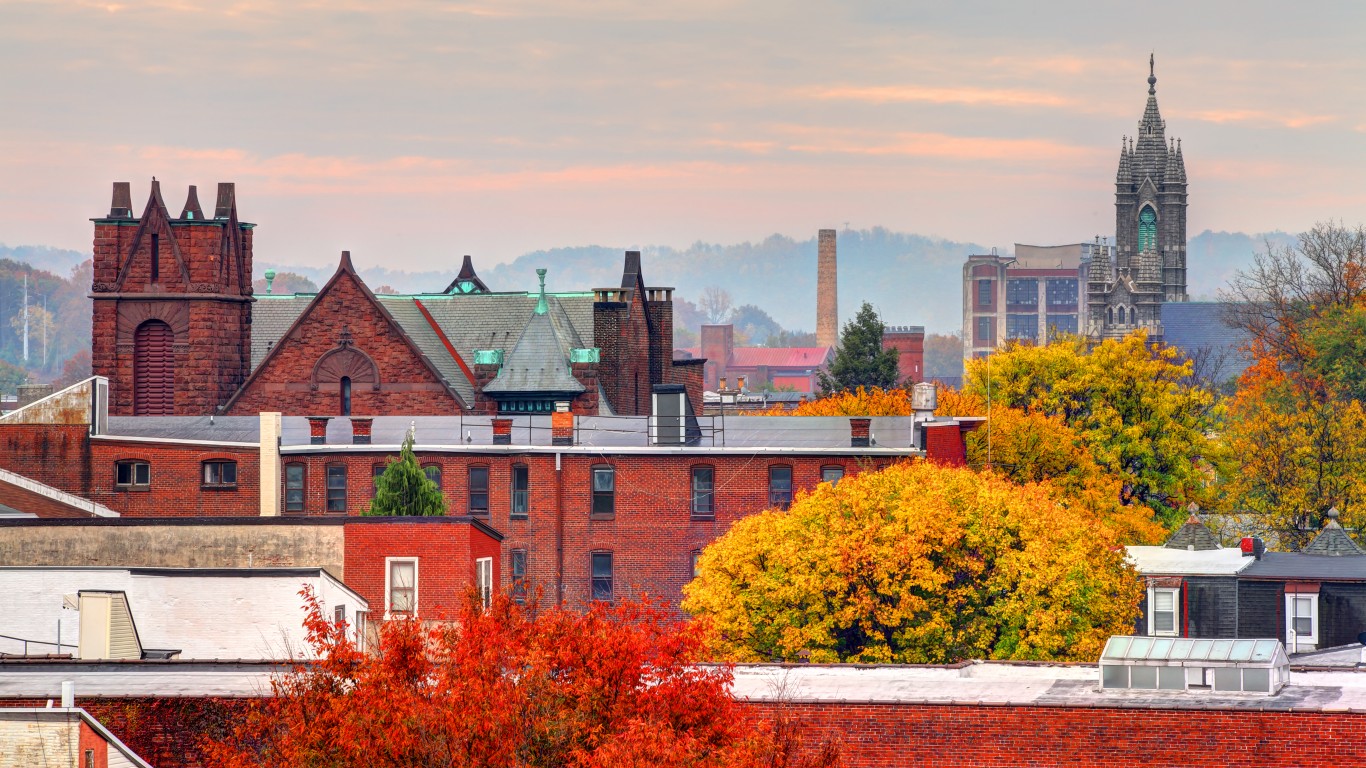
38. Pennsylvania: Reading
> Concentrated poverty rate: 28.1% of poor pop. (15,374 residents)
> Overall poverty rate: 13.6% (state: 13.1%)
> Neighborhoods with concentrated poverty: 9 out of 89
> Unemployment: 22.7% (poor neighborhoods) 6.3% (all other)
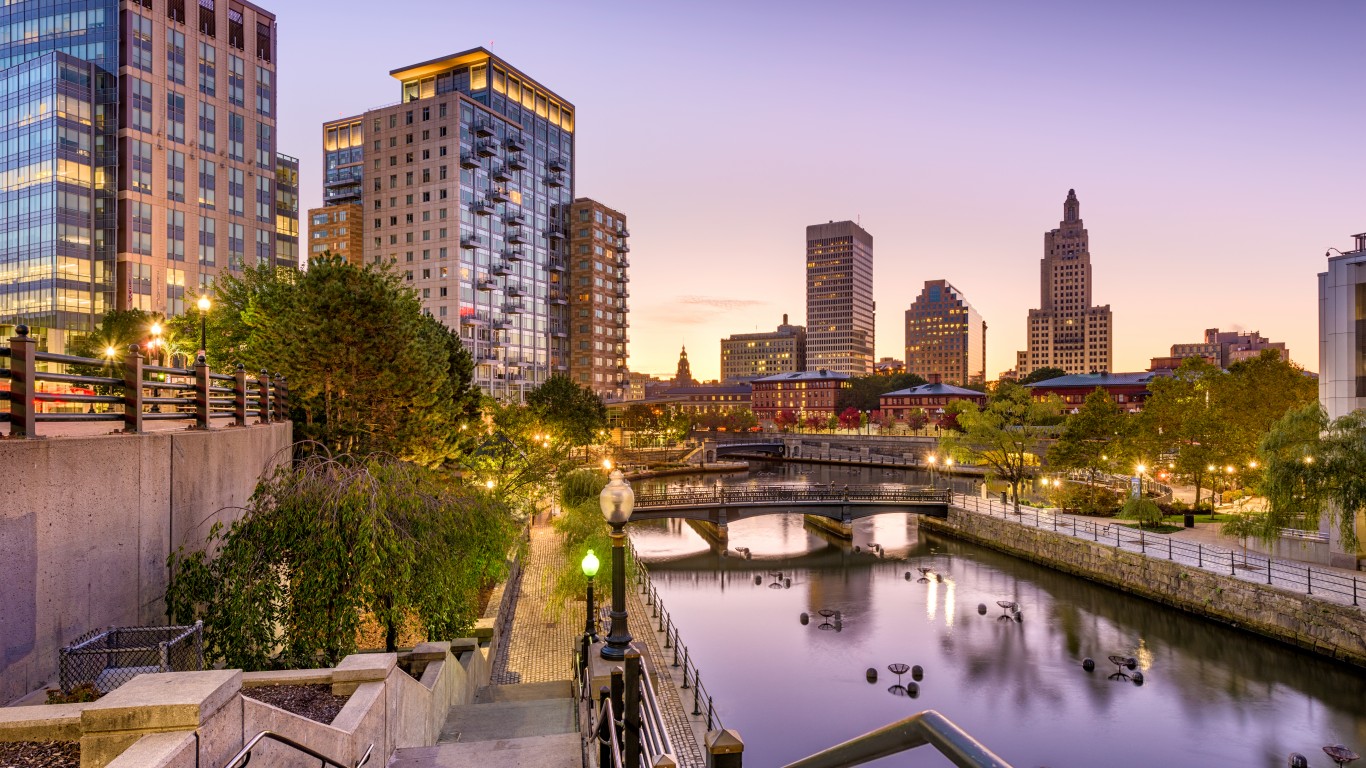
39. Rhode Island: Providence-Warwick
> Concentrated poverty rate: 4.9% of poor pop. (9,967 residents)
> Overall poverty rate: 13.0% (state: 13.4%)
> Neighborhoods with concentrated poverty: 9 out of 359
> Unemployment: 11.0% (poor neighborhoods) 6.9% (all other)
[in-text-ad-2]
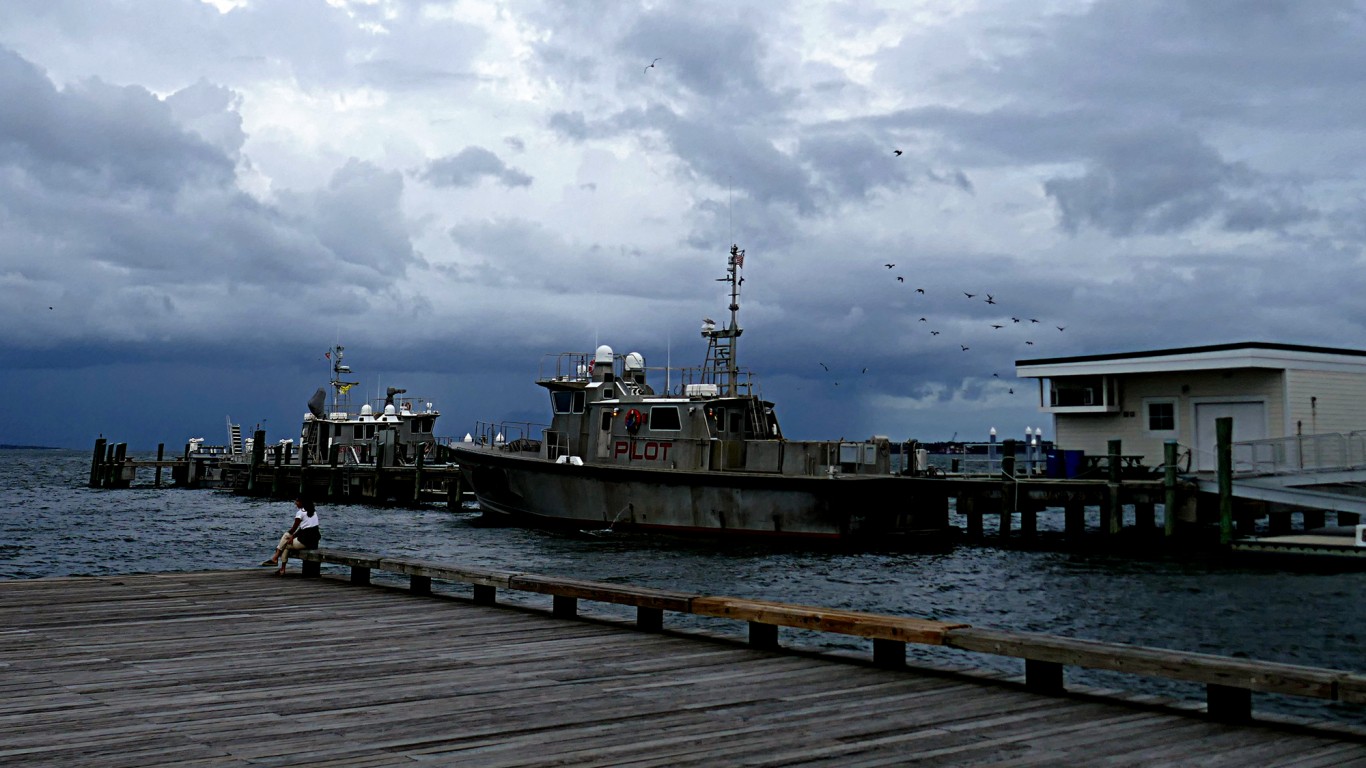
40. South Carolina: Charleston-North Charleston
> Concentrated poverty rate: 11.1% of poor pop. (11,208 residents)
> Overall poverty rate: 13.9% (state: 16.6%)
> Neighborhoods with concentrated poverty: 8 out of 151
> Unemployment: 9.6% (poor neighborhoods) 5.8% (all other)
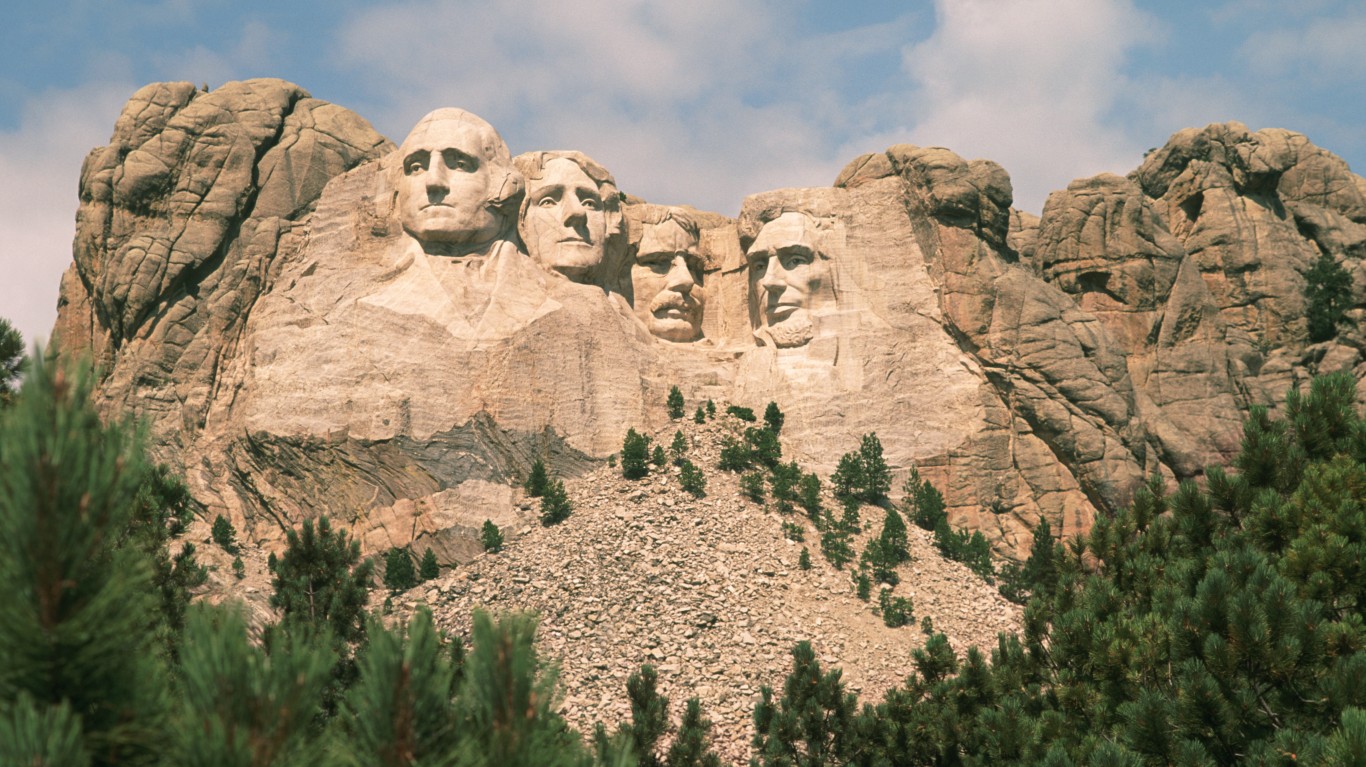
41. South Dakota: no metro area with concentrated poverty
> State poverty rate: 13.9%
[in-text-ad]
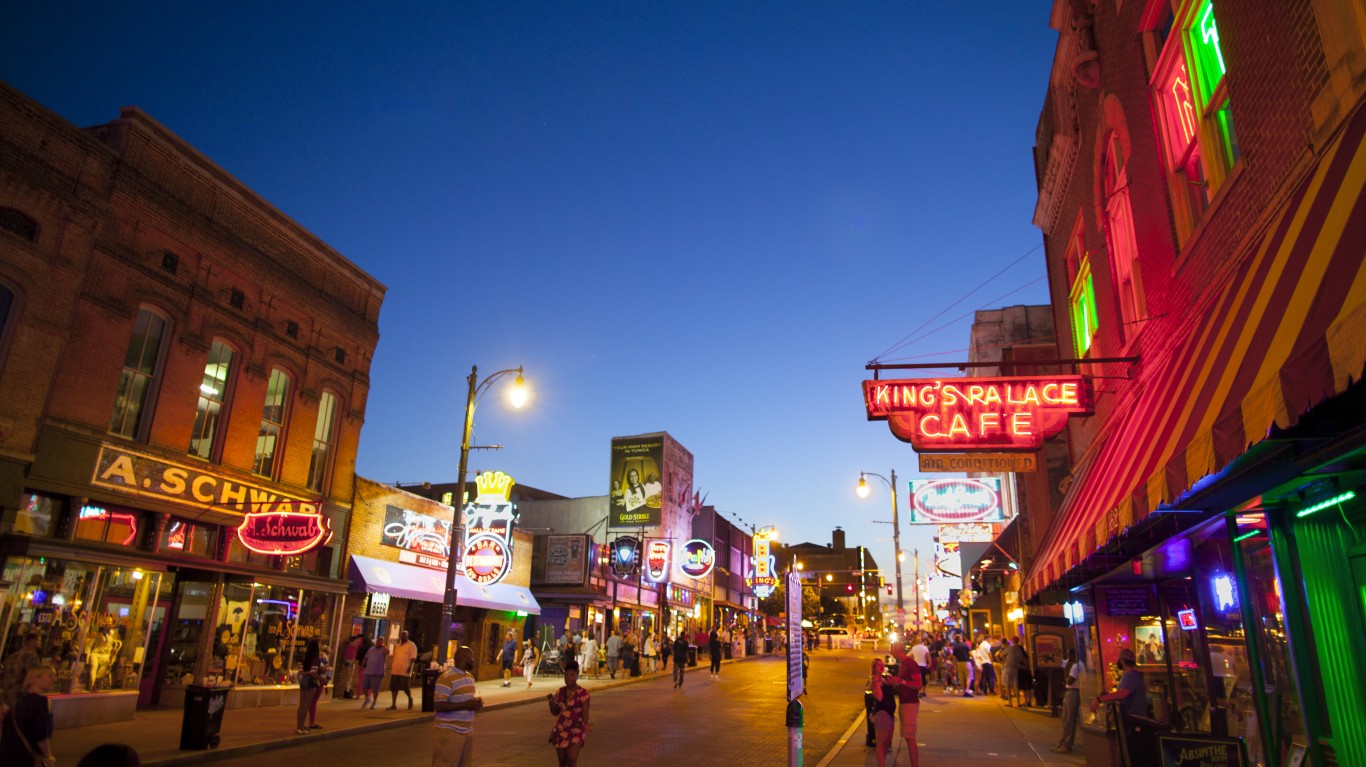
42. Tennessee: Memphis
> Concentrated poverty rate: 28.4% of poor pop. (70,965 residents)
> Overall poverty rate: 18.9% (state: 16.7%)
> Neighborhoods with concentrated poverty: 52 out of 309
> Unemployment: 16.3% (poor neighborhoods) 7.6% (all other)
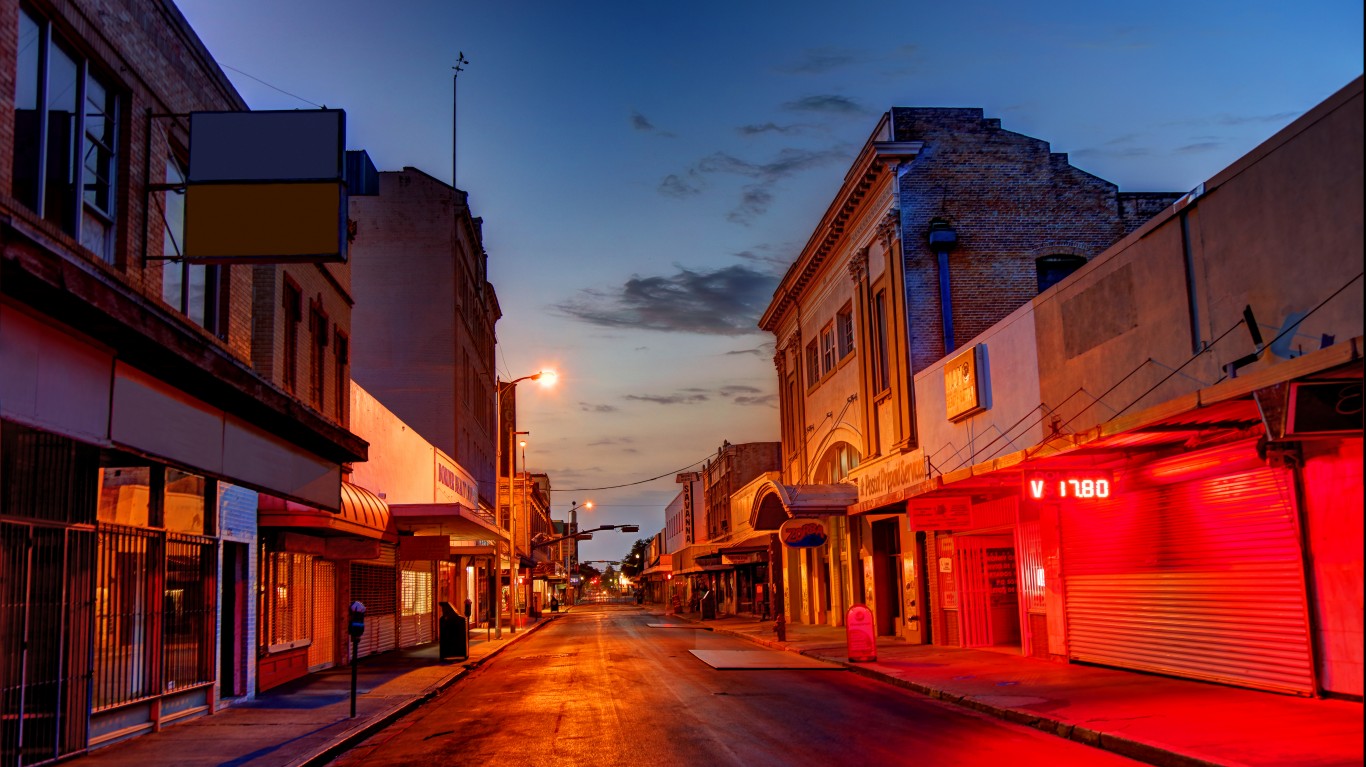
43. Texas: Laredo
> Concentrated poverty rate: 54.2% of poor pop. (45,403 residents)
> Overall poverty rate: 31.5% (state: 16.0%)
> Neighborhoods with concentrated poverty: 27 out of 60
> Unemployment: 7.2% (poor neighborhoods) 5.2% (all other)
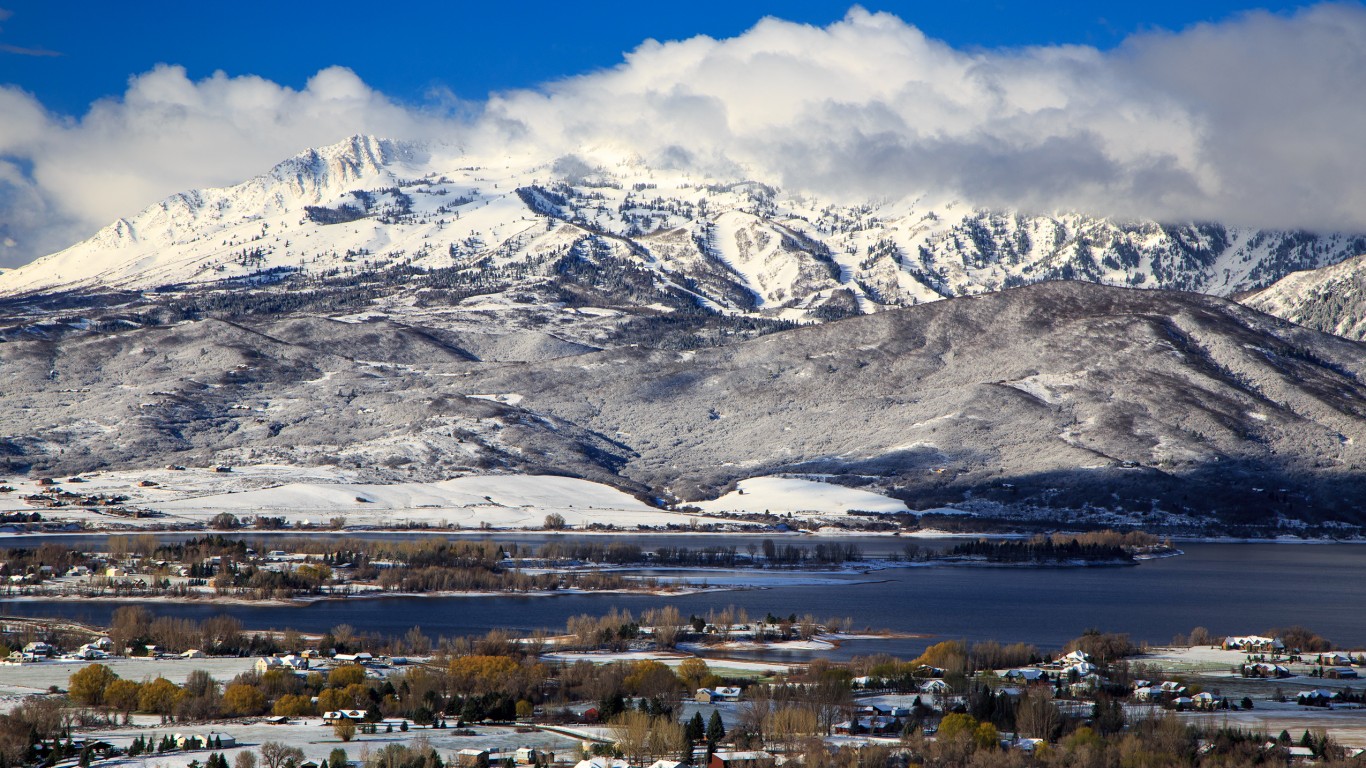
44. Utah: Ogden-Clearfield
> Concentrated poverty rate: 6.5% of poor pop. (3,623 residents)
> Overall poverty rate: 8.7% (state: 11.0%)
> Neighborhoods with concentrated poverty: 3 out of 116
> Unemployment: 14.9% (poor neighborhoods) 4.0% (all other)
[in-text-ad-2]
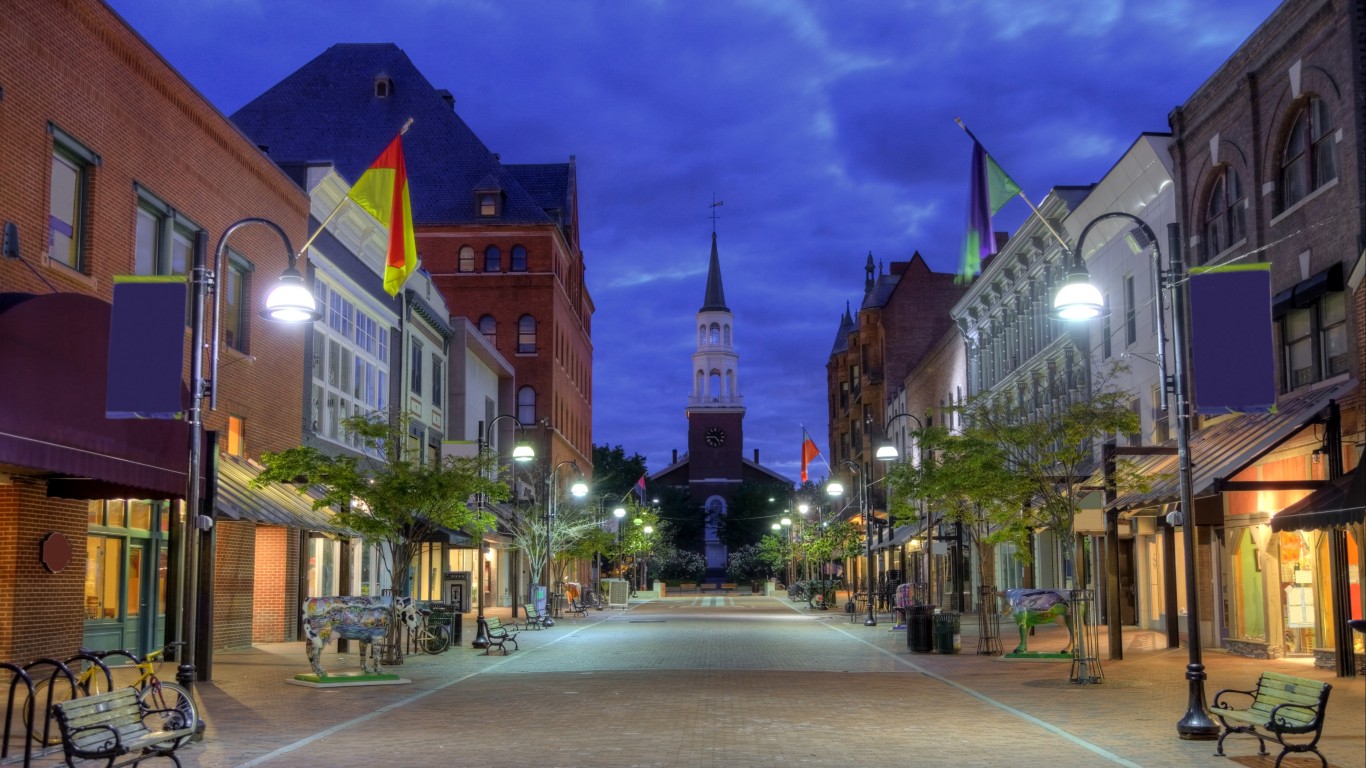
45. Vermont: Burlington-South Burlington
> Concentrated poverty rate: 10.9% of poor pop. (2,332 residents)
> Overall poverty rate: 10.4% (state: 11.4%)
> Neighborhoods with concentrated poverty: 1 out of 45
> Unemployment: 8.1% (poor neighborhoods) 4.0% (all other)
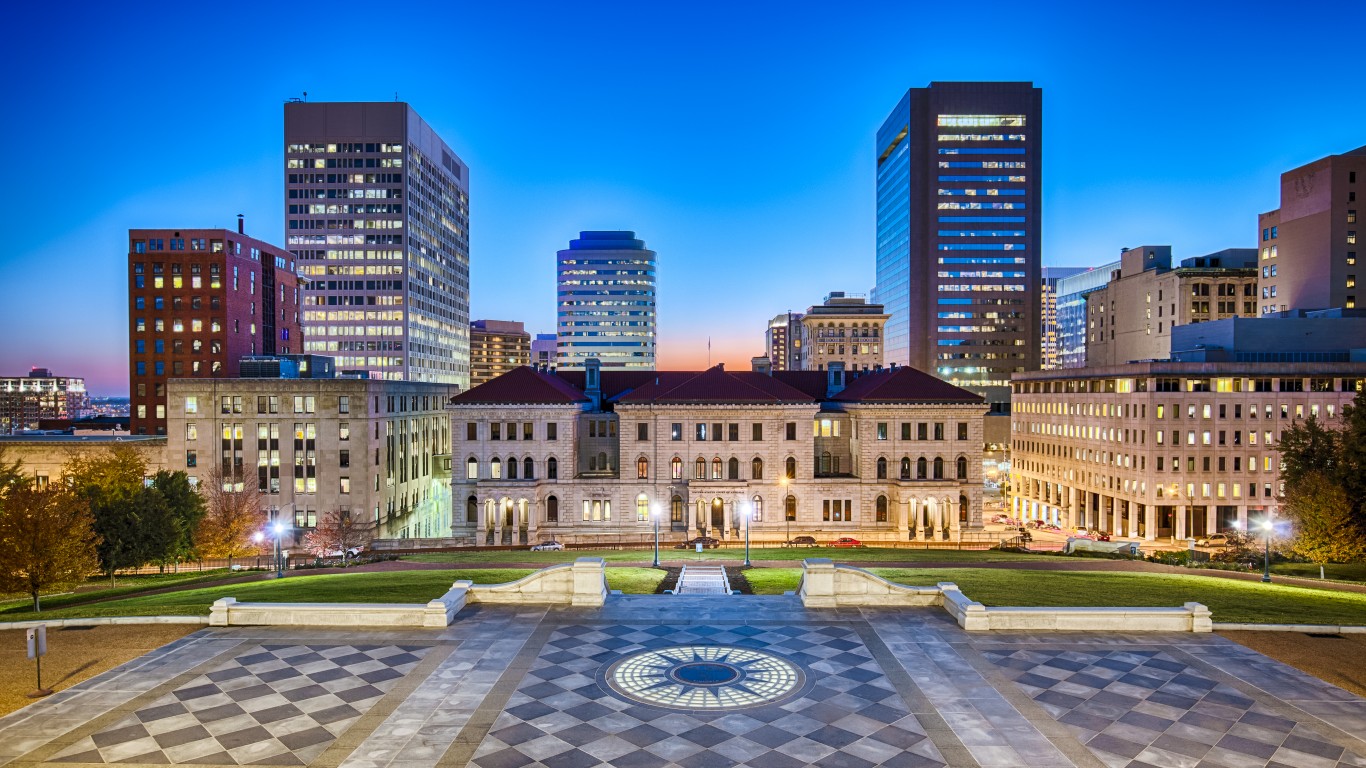
46. Virginia: Richmond
> Concentrated poverty rate: 10.1% of poor pop. (15,334 residents)
> Overall poverty rate: 12.4% (state: 11.2%)
> Neighborhoods with concentrated poverty: 11 out of 290
> Unemployment: 14.5% (poor neighborhoods) 6.2% (all other)
[in-text-ad]
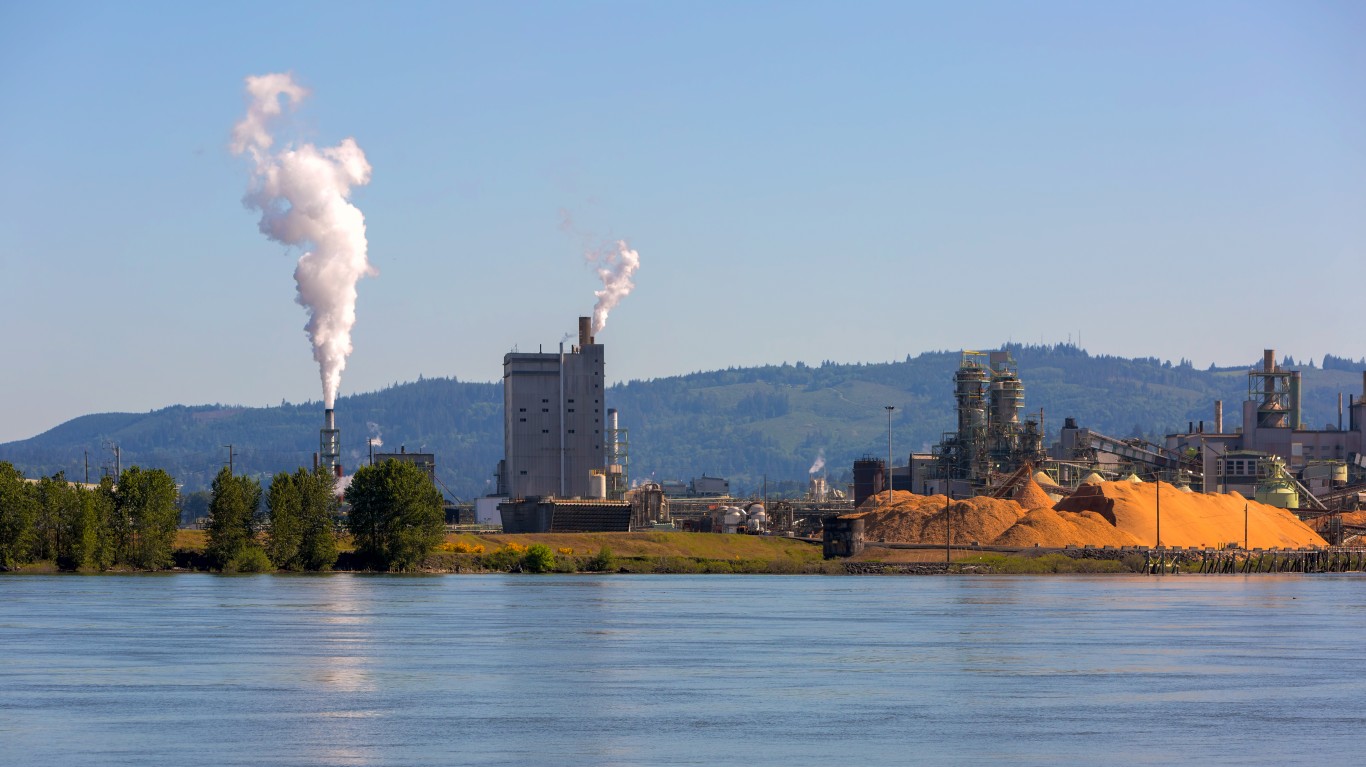
47. Washington: Longview
> Concentrated poverty rate: 23.8% of poor pop. (4,097 residents)
> Overall poverty rate: 16.9% (state: 12.2%)
> Neighborhoods with concentrated poverty: 4 out of 24
> Unemployment: 12.9% (poor neighborhoods) 8.0% (all other)
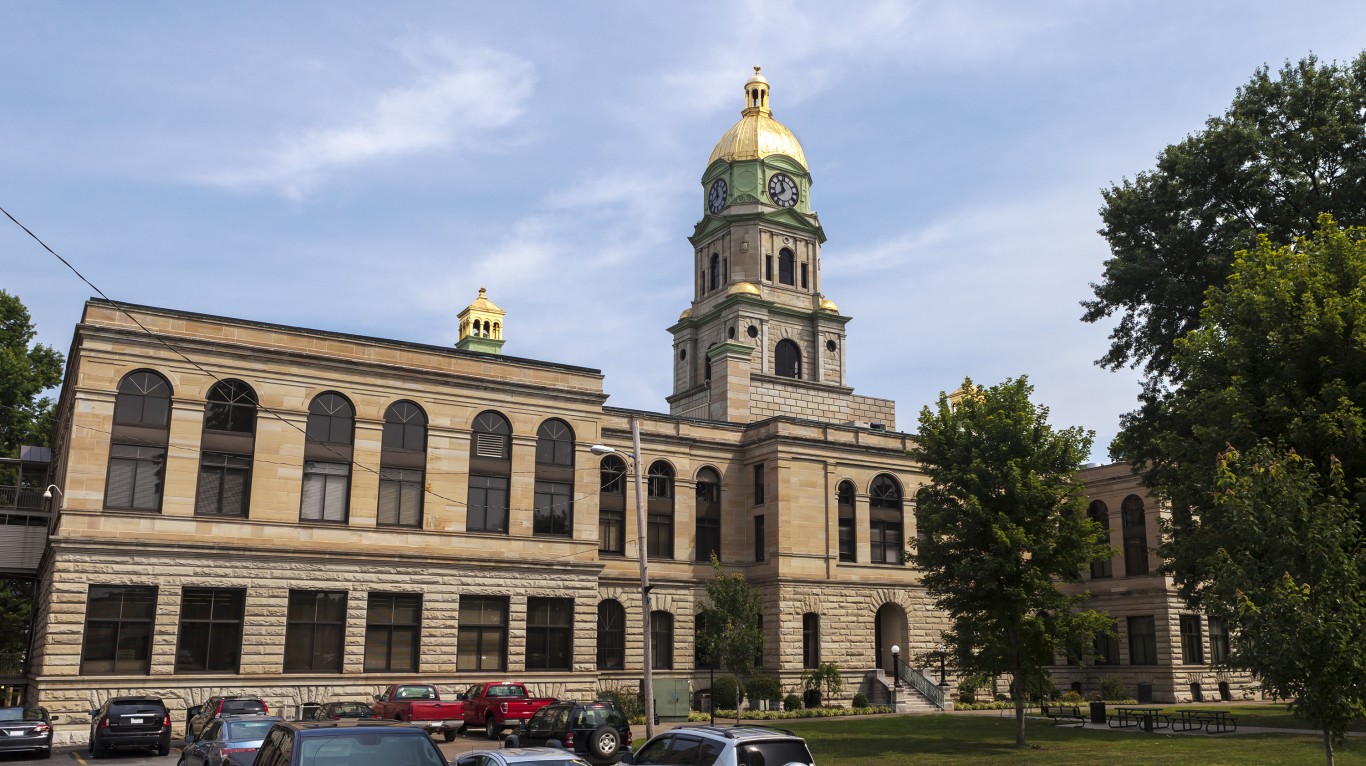
48. West Virginia: Huntington-Ashland
> Concentrated poverty rate: 14.2% of poor pop. (9,437 residents)
> Overall poverty rate: 18.8% (state: 17.8%)
> Neighborhoods with concentrated poverty: 8 out of 92
> Unemployment: 12.3% (poor neighborhoods) 6.5% (all other)
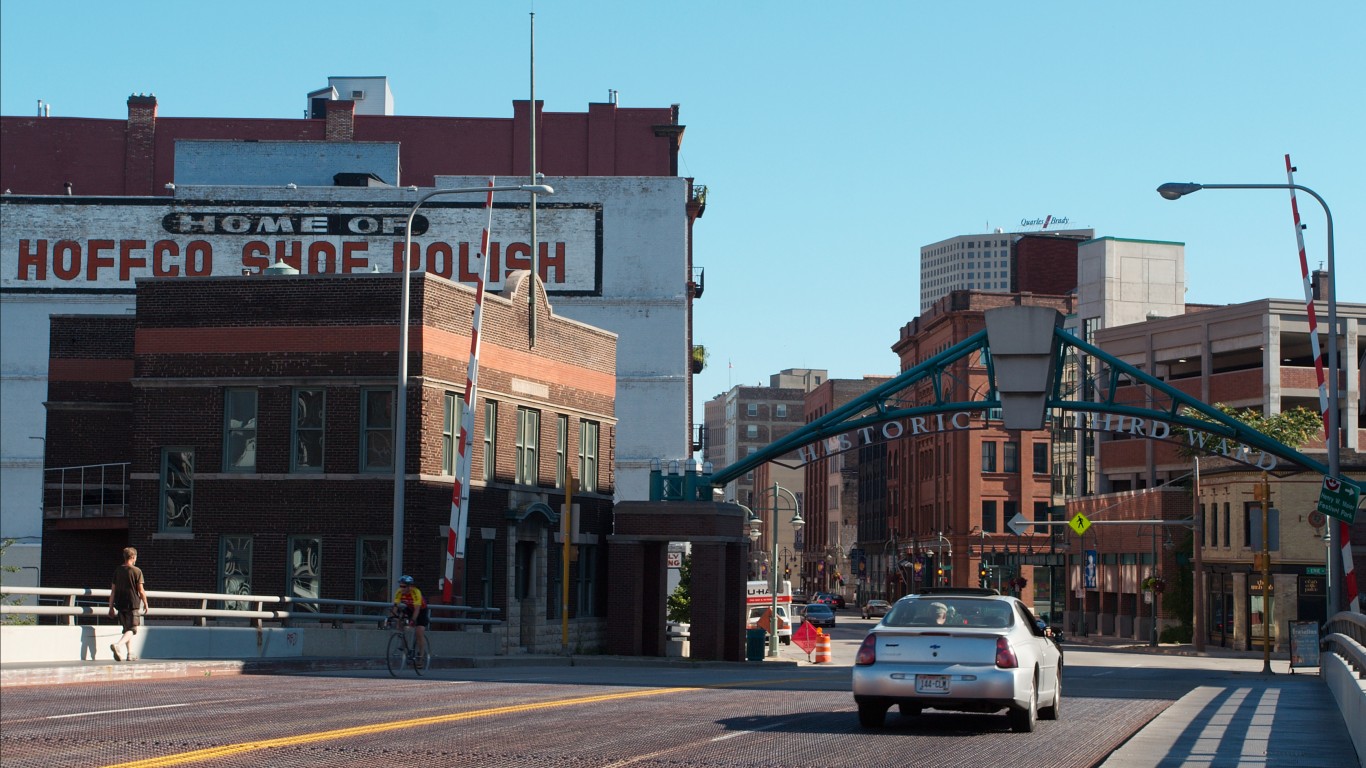
49. Wisconsin: Milwaukee-Waukesha-West Allis
> Concentrated poverty rate: 23.5% of poor pop. (52,706 residents)
> Overall poverty rate: 14.5% (state: 12.3%)
> Neighborhoods with concentrated poverty: 49 out of 422
> Unemployment: 15.1% (poor neighborhoods) 5.1% (all other)
[in-text-ad-2]
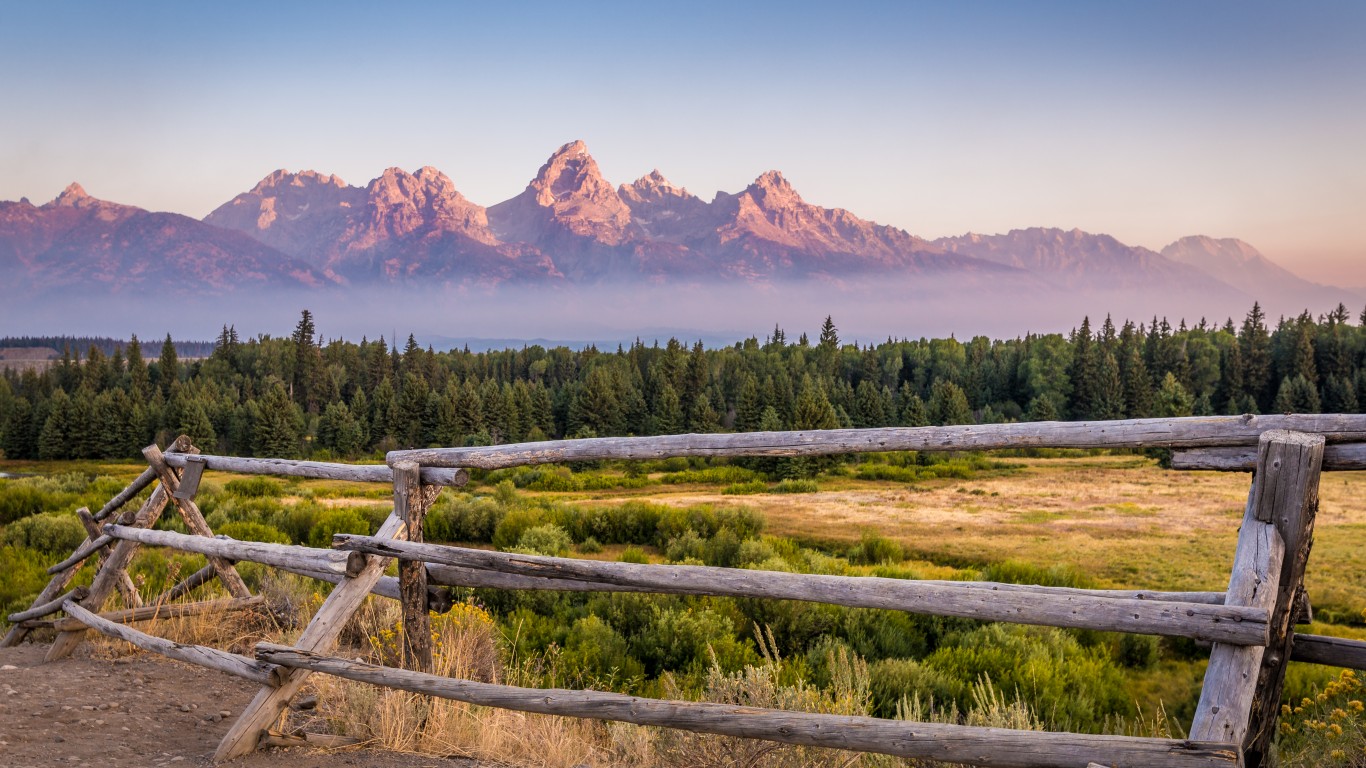
50. Wyoming: no metro area with concentrated poverty
> State poverty rate: 11.1%
Methodology
To identify the metropolitan areas hit hardest by extreme poverty, 24/7 Wall St. reviewed U.S. Census Bureau American Community Survey data on poverty rates at the tract level. We listed for each state the metro area where the largest percentage of poor residents live in concentrated poverty. The concentrated poverty rate is the share of a metropolitan area’s poor population that lives in a census tract that has a poverty rate of 40% or higher. We also reviewed other data from the ACS, including educational attainment rates and unemployment rates for both groups in concentrated poverty and those not in concentrated poverty.
The last few years made people forget how much banks and CD’s can pay. Meanwhile, interest rates have spiked and many can afford to pay you much more, but most are keeping yields low and hoping you won’t notice.
But there is good news. To win qualified customers, some accounts are paying almost 10x the national average! That’s an incredible way to keep your money safe and earn more at the same time. Our top pick for high yield savings accounts includes other benefits as well. You can earn up to 3.80% with a Checking & Savings Account today Sign up and get up to $300 with direct deposit. No account fees. FDIC Insured.
Click here to see how much more you could be earning on your savings today. It takes just a few minutes to open an account to make your money work for you.
Thank you for reading! Have some feedback for us?
Contact the 24/7 Wall St. editorial team.